Following my post on about “Les Branquignols“, I wanted to document the history of French Secret Services in order to verify my intuition, that France was infiltrated by a mafia. My first investigations in 2015 were mostly directed at connecting the dots to understand the reason why I suddenly and brutally came into troubles in 1995. I came to learn more about the Foccart Networks, their relation to Gaullism, Jacques Chirac and the French Secret Services, but I could not track the evolution through the different presidencies.
After my post on “Les Branquignols”, I found a document published by the CNRS in 2016 titled “A brief contemporary history of French intelligence“. The document explains how the French secret services evolved with crises and particularly after the fall of the Berlin Wall in 1989. This is the beginning of a world of “mediatisation” following the Glorious Thirty years of development in Western Europe. Each time the French secret services have evolved, it was in response to a dramatic event. Before the terrorist attack of September 11, 2001, the document mentions the death of Commandant Massoud as the end of a bipartisan world. The geopolitics became clustered in smaller and multilateral groups.
Page 4 of the CNRS document, the death of Commandant Massoud marks the end of the post cold war. The cold war lasted from 1945 to the fall of the Berlin wall on November 9, 1989. The post cold war era lasted from November 10, 1989 to September 8, 2001 and the death of Commandant Massoud on September 9, 2001, is related as the beginning of the end of the post cold war. This is a shift in the French politics that will lead to an intense ramification of the French Secret Services inside and outside the national territory. The document does not account September 11th, 2001 as a source of change, but rather as a consequence of Commandant Massoud’s assassination.
On Tarlogic, a Spanish company that combats cybercriminality, the analyse comes to this:
The strong growth experienced by international flows of capital and goods in recent decades, driven by the phenomenon of globalization, has given rise to a new competitive paradigm among global powers. In this newly established order, states not only face off over territorial issues, but also compete for market dominance. The interests of large companies in a country thus become a strategic issue, particularly enterprises that are partially state-owned or belong to sectors of special relevance, such as energy or defense. For this reason, governments are developing different measures to support the interests of national companies abroad. Of these, diplomacy is the most visible, but the one that is particularly relevant due to its impact, although less well known, is the work of the intelligence services.
Compared with other countries, France stands out for the use of its intelligence services to benefit its companies. In addition, it has created its own original school of thought on the subject, with specialized academic institutions and programmes. In response to the notion of competitive intelligence, originating in the Anglo-Saxon world, France has developed the concept of economic intelligence. Although in a strict sense it is understood that this latter term designates the set of activities carried out by Governments and, more specifically, by intelligence services in support of domestic companies, in France this expression has a broader application, expanding to include the military and civilian tactics, techniques and procedures derived from the intelligence community in the private sector. In addition, the French state currently has agencies specialized in economic intelligence, not only within the public administration, but also in the intelligence services.
These French tactics, known since the Cold War, are distinguished both by their aggressive character and by their effect on companies of economic rivals, even those from allied countries. In fact, in the early 1990s, concern in the United States regarding these tactics led to related details being leaked to the press, which provided an exceptional opportunity to learn about the nature of the operations.
The French intelligence services have defended the international interests of the country’s large companies since at least the 1960s. In a CIA report to the U.S. Senate intelligence committee in August 1966, Israel and France were singled out as the two allied countries that most resorted to spying on U.S. companies. In the French case, these actions were justified by the state involvement in large international companies, so that in practice the state intelligence community acted to the benefit of public companies.
https://www.tarlogic.com/blog/france-and-economic-intelligence/
And the same Tarlogic report to add:
The end of the Cold War did not result in a cut in the DGSE’s budgets or a reduction in its operations, as might be expected from the so-called peace dividends, but quite the opposite: in 1992, the year after the dissolution of the Soviet Union, the budget of this entity increased by 9% and its staff increased by a thousand.
On page 4 of the CNRS document, we learn more about this event of 1992:
A real alternative revolved around a review of practices and institutions, to form a truly autonomous system, and the construction within the DGSE of a “military intelligence” branch, by absorbing the existing apparatus within of a unique foreign intelligence community. From a technical point of view, the EMA favored the first solution, while the DGSE preferred the second. It was without taking into account the military lobby and its entries into the political world! In the spring of 1992, the Directorate of Military Intelligence (DRM) was created.“
In other words, the French army created a network of military intelligence, which was autonomous from the French Secret Services and this apparatus was political. 1992 coincides with the after war in Iraq and the period when Pierre Beregovoy was in office as Prime Minister. He died by “suicide” on 29 March 1993. The Prime minister who started the process that created the DRM was Michel Roccard, pictured with Geneviève Domenach-Chich on my post “Les Branquignols“. The man who initiated the idea of military intelligence was François Mermet in the 70s. In 1987, Jacques Chirac appointed him as Director of the French Secret Services and François Mitterrand approved the restructuration that was finalized in 1992. The Special Operations Command was created only 8 days after the DRM. In 1994, those two new entities had created so much competition inside the regular secret services that a charter of non-aggression was signed in November between the regular Secret Services and the Military Intelligence.
Faced with these latent tensions and the enlargement of the French intelligence perimeter, political decision-makers considered organizing a more communal functioning. The services also needed better coordination. Prime Minister Michel Rocard (1988-1990) accelerated the turn in computerization, which had been in its infancy since the early 1980s, and in communication technologies, which were still new. Under this effect, also changed the informational environment of the services, confronted with an exponential increase of the open sources. At the same time, the development of economic intelligence and corporate security helped expand the frontiers of the intelligence community.
On Spring 2008 the complete modification of the structure of the Secret Services was achieved by Nicolas Sarkozy in what the document says, “something similar to the secret services in the United-Kingdom and the United-States” and what we shall remember from that is probably the term “united”. France, on its own, has transformed the secret services into an organization of smaller entities that would “re-unit” the French territories in the world, extend them and reinforce their ties with “economic intelligence” methods. Tarlogic provides an insight of the French “economic intelligence” methods:
…the CIA urged forty-eight U.S. aerospace and defence companies not to attend the Paris-Le Bourget Air Show, the largest event of its kind in the world, in light of the threat of French espionage. While at the previous edition of the air show, held in 1991, the United States exhibited a sample of all the planes that had participated in the Gulf War, in 1993 it arrived with only two F-16 fighters. […] James Woolsey, director of the CIA between 1993 and 1995, went so far as to claim in 1993 that intelligence operations against U.S. companies were the “hottest” issue after nuclear proliferation. […] Claude Silberzahn, director of the DGSE between 1989 and 1993, admitted to the espionage activity on foreign companies to benefit French ones in a 1996 television documentary. By way of explanation, he alluded to the fact that this kind of tactic is a resource for “all the secret services of large democracies” and that, in the French case, its justification is even greater given that the State owns or is a shareholder in many companies.
The CNRS document provides an organigram to explain the structure of the French Secret services:
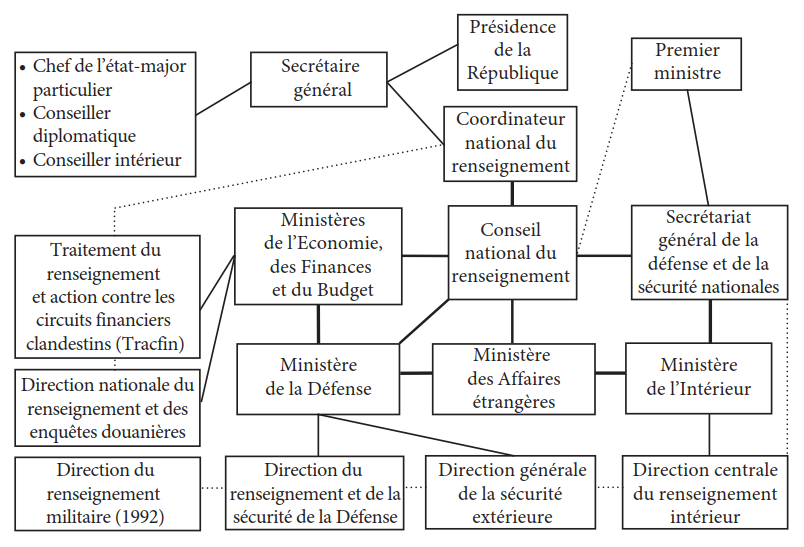
I have redrawn and extended that chart with different sources of information available on internet:
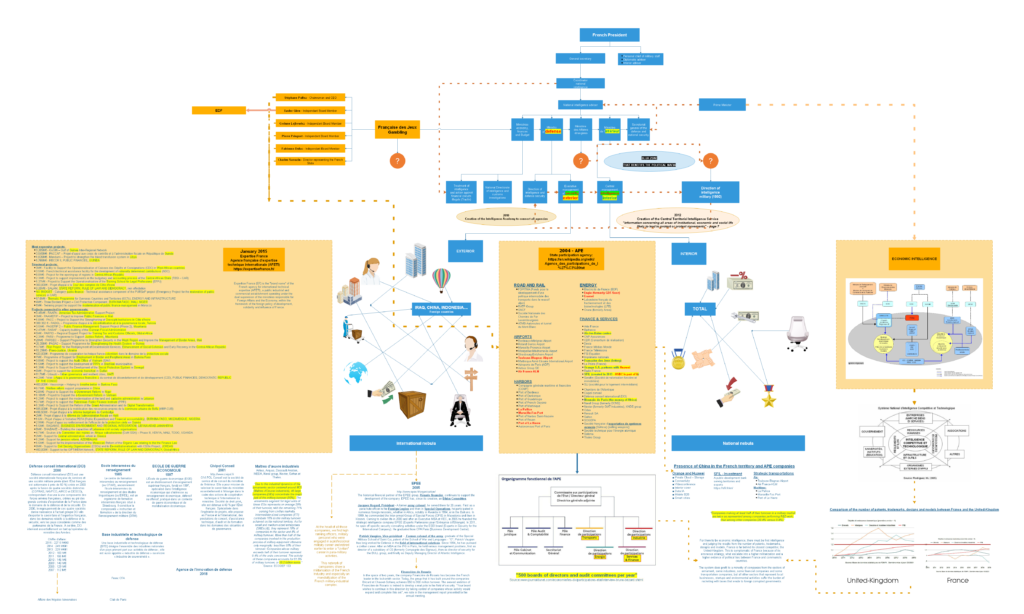
The militarization of the French Secret services has followed the following chronology:
1961 – Creation of Délégation Ministérielle pour l’Armement (DMA) created by Charles de Gaulle.
1977 – The DMA becomes the DGA, Délégation Générale pour l’Armement.
1985 – Creation of Ecole interarmées du renseignement
1987 – François Mermet becomes the Director of the French Secret Services
1992 – Creation Direction du Renseignement Militaire (DRM)
1997 – Creation of Ecole de guerre économique whose Director is Christian Harbulot.
2000 – Creation of Défense conseil international (DCI)
2001 – Creation of Civipol Conseil
2004 – Creation of APE, State participation agency
2008 – Creation of Direction centrale du Renseignement intérieur (DCRI)
2009 – Creation of DIRRECTE with its Economic Intelligence structure affiliated to DGA
2010 – Creation of the Intelligence Academy
2012 – Creation of the Central Territorial Intelligence Service
2014 – Creation of the Direction générale de la Sécurité intérieure (DGSI) to replace DCRI
2014 – Creation of the Direction générale des Entreprises (DGE) affiliated to DGA
2015 – Creation of Expertise France
2018 – Creation of Agence de l’innovation de défense
With the creation of the Direction du Renseignement Militaire (DRM), we see the scope of Secret Services enlarged to private companies. In 2004 with the creation of APE, the state takes shares in large companies such Thales. In 2008, the secret services accentuate their focus toward small national companies and in 2009, the DIRRECTE are created. With the DIRRECTE’s structure, the French army will introduce a new kind of intelligence by promoting the manufacturing of armament and communications. Militaries are sent in the territories to spy on French companies, influence, disrupt local businesses and impose its new orientations for the armament industry. The following document was released by the DGA (Direction Générale de l’Armement). If you cross the names with this other document released by the DGE (Direction Générale des Entreprises), you will find that the regional contacts have similarities. Those contacts are precisely the people who bring the State investments and lead the French industry toward a militarization.
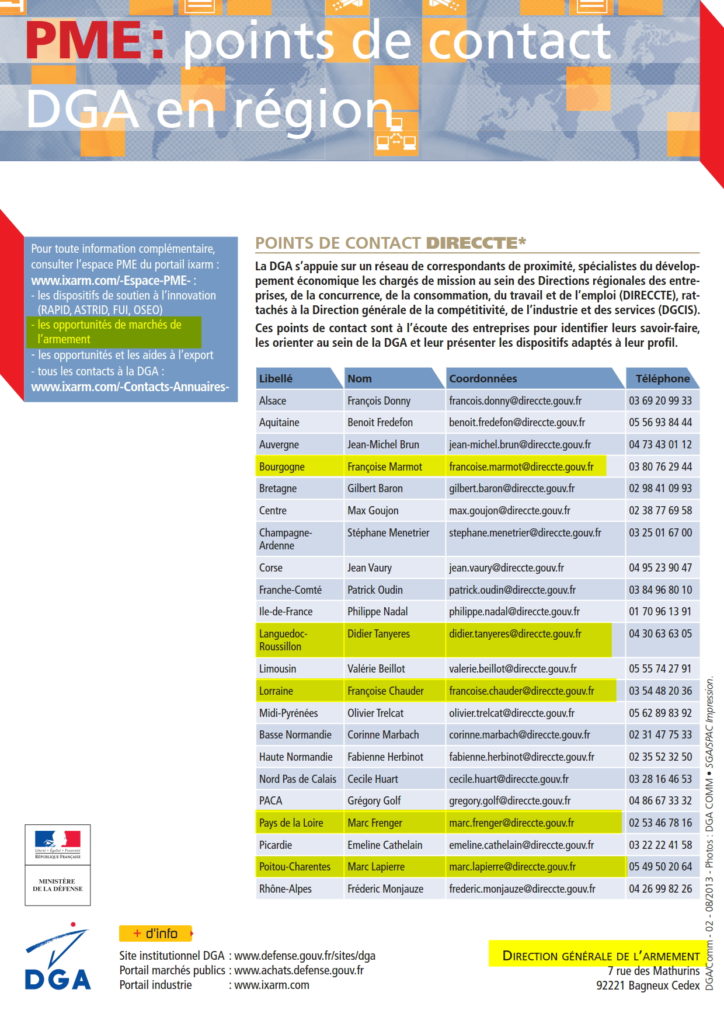


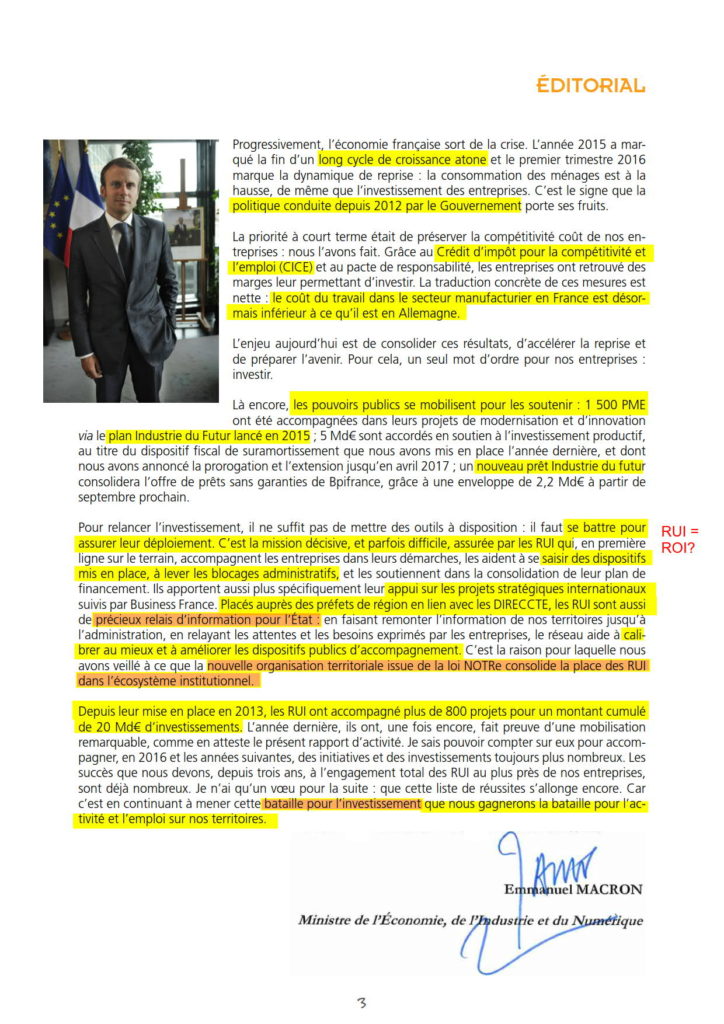
The DGE document was created by the “Bureau de la réindustrialisation et le bureau de la communication” (Reindustrialization Office and Communication Office). In a context where France is losing its industries, the production of weapons is promoted through those documents to re-create a French industry on armament and intelligence. “Réindustrialisation” means “armament industry” and “communication” must be taken on a military sense for the collection of intelligence information. Few years before, in 2004, the APE was created where the state was taking shares in strategic sectors. In 2011, Chinese companies were starting to buy strategic sectors of the French industry such ports, airports, telecommunications and rare earth.
Page 7 of the DGE document, we can see the disproportion of the investment from the state:
€ 2 millions = 10 jobs created = the company receives €200,000 for one job created.
€ 5 millions = 25 jobs = the company receives €200,000 for one job created.
€ 30 millions = 100 jobs = the company receives €300,000 for one job created.
The document also reveals page 8 that DGE is providing a “pass project” to accelerate the payment of funds from the government, what translates into less verifications, less steps and a faster disbursement of the money. The larger the funds, the faster it is paid and the payments are validated by only one person who is in charge of all the administration procedures. When we compare the personnel from DGA and DGE, we find a common ground.
| Region | DGA | DGE |
| Alsace | François Donny | François Donny |
| Aquitaine | Benoit Fredelon | Julien Szabla |
| Auvergne | Jean-Michel Brun | Caroline Coutout |
| Bourgogne | Françoise Marmot | Pierre Carnet |
| Bretagne | Gilbert Baron | Valérie Drouard |
| Centre | Max Goujon | Emmanuel Constantin |
| Champagne Ardenne | Stéphane Menetrier | Nicolas Fourrier |
| Corse | Jean Vaury | |
| France Comté | Patrick Oudin | Emanuel Degive |
| Ile de France | Philippe Nadal | Mathieu Aufauvre |
| Languedoc Rousillon | Didier Tanyeres | Christian Levon |
| Limousin | Valérie Beillot | Valérie Beillot |
| Lorraine | Françoise Chauder | Emilie Rachenne |
| Midi-Pyrénée | Olivier Trelcat | Sébastien Guérémy |
| Basse Normandie | Corinne Marbach | Michael Monerau |
| Haute Normandie | Fabienne Herbinot | Michael Monerau |
| Nord Pas de Calais | Cécile Huart | Hélène Exbrayat |
| PACA | Grégory Golf | Yann Song |
| Pays de la Loire | Marc Frenger | Franck Rambaud |
| Picardie | Emeline Chatelain | Helène Exbrayat |
| Poitou Charente | Marc Lapierre | Arnaud Laguzet |
| Rhone Alpes | Frédéric Monjauze | Caroline Coutout |
| 22 people | 18 people |
If you examine the news even closer, you will find many personalities who navigate from DGA to DGE with always, one and only objective which is to militarize France. Thomas Courbe and Christophe Sauvion are two among many examples.
On the French Ministry of Defense website about the RAPID program:
As of this date, the General Directorate of Enterprises (DGE) is no longer a stakeholder in this mechanism, it is the Defense Innovation Agency (AID) which is responsible in its entirety. […] Beneficiaries of current RAPID grant agreements have received a letter informing them of the new contact details for the service in charge of paying their expenditure. The technical correspondent of the Ministry of the Armed Forces for each RAPID project remains the same.
https://www.defense.gouv.fr/aid/deposez-vos-projets/subventions/rapid
On February 28, 2020, the French Ministry of Defense posted an “Evolution de l’organisation de la DGA“
An organizational change in the Directorate General of Armaments came into effect on January 1, 2020. It supports the transformation of the DGA as part of its “DGA Evolution” plan and certain changes in the Ministry of the Armed Forces.
In order to gain clarity and simplify decision-making at the level of the COMEX DGA, the defense system architecture service (SASD, ex-SPSA) and the industrial affairs and economic intelligence service (S2IE) are reporting directly to the General Delegate for armaments. This organizational change will in particular make it possible to consolidate the preparation of future weapons systems as part of the enhanced capability approach and the construction of European cooperation in the field of armaments.
In addition, the Minister of the Armed Forces Florence Parly entrusted the DGA with the extended mission of leading and coordinating the support policy for SMEs and mid-caps on behalf of the entire ministry, via the small and medium-sized sub-directorate companies (SDPME) of S2IE. The DGA becomes both the sole pilot of the ministry’s SME policy and the facilitator of a common entry point for all the SME’s for military equipment and support.
In addition, the intellectual property office is integrated into the S2IE. It previously reported to the Strategy Directorate / Intellectual Property and General Affairs Branch (DS / SDPA).
Finally, a post of “digital transformation” project manager is created and attached to the General Delegate for armaments, in order to implement the digital strategy of the DGA in connection with the transformations of the ministry, both internally and for digitization weapon systems.
https://www.defense.gouv.fr/dga/actualite/evolution-de-l-organisation-de-la-dga
On a document from SDPME (Sous-Direction des Petites et Moyennes Entreprises) we clearly see that DGA “agents”, “référents” and “délégué” have a double activity for armament and small companies in both the DGA and the DGE. They collect strategic information on the national territory and have a mission to spy on French companies.
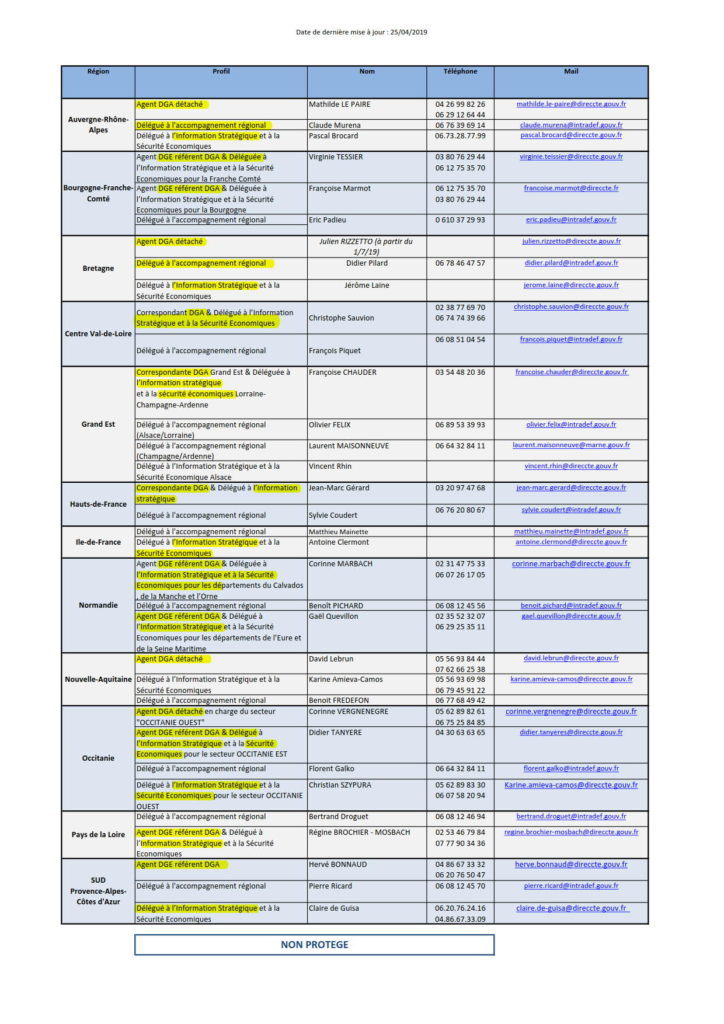
On the document “L’activité 2015 des référents uniques pour les investissements“:
To relaunch investment, it is not enough to make tools available: you have to fight to ensure their deployment. This is the decisive, and sometimes difficult, mission carried out by the RUIs who, on the front line in the field, support companies in their procedures, help them to understand the mechanisms put in place, remove administrative blockages, and support in consolidating their financing plan. They also provide more specific support for international strategic projects monitored by Business France. Placed with the regional prefects in conjunction with the DIRECCTEs, the RUIs are also valuable information relays for the State: by forwarding information from our territories to the administration, by relaying expectations and needs expressed by companies, the network helps to better calibrate and improve public support systems. This is the reason why we have ensured that the new territorial organization resulting from the NOTRe law consolidates the place of the RUIs in the institutional ecosystem.
https://www.entreprises.gouv.fr/files/files/01-nouveau-portail/secteurs-d-activite/industrie/politique-industrielle/rapport-activite-rui-2015.pdf
The mission of the 34 SDPME agents is clearly defined as a military mission to enforce a politic and we can see here how easy an ideology can spread with a pyramidal system whose vocabulary, terminology and structure finds many parallels with communism and mafia. The man at the head of the DGA made a fast evolutive career from simple engineer to “Délégué Général pour l’Armement” (General Delegate for Armament) and we can only wonder how. It is also interesting to see how they translate “Délégué” into “Chief Executive”, a business terminology. The language is cleaned, polished and made readable for an English/US public. More over, it is interesting how French companies now have a State “Direction” and how the head of DGA takes the role as “Chief Executive”.
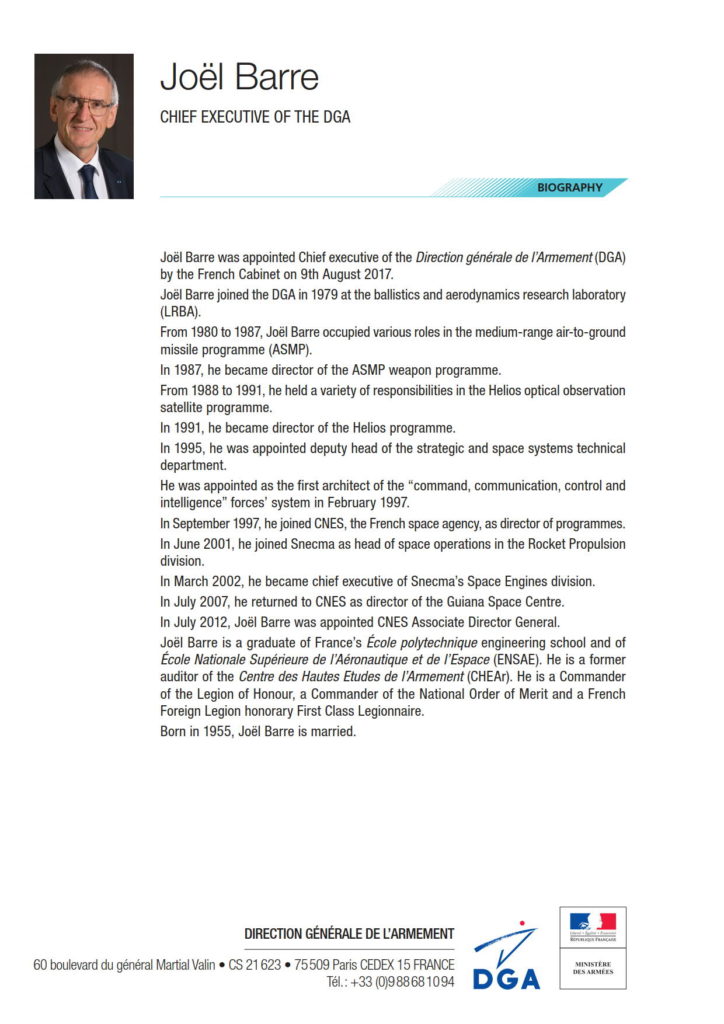
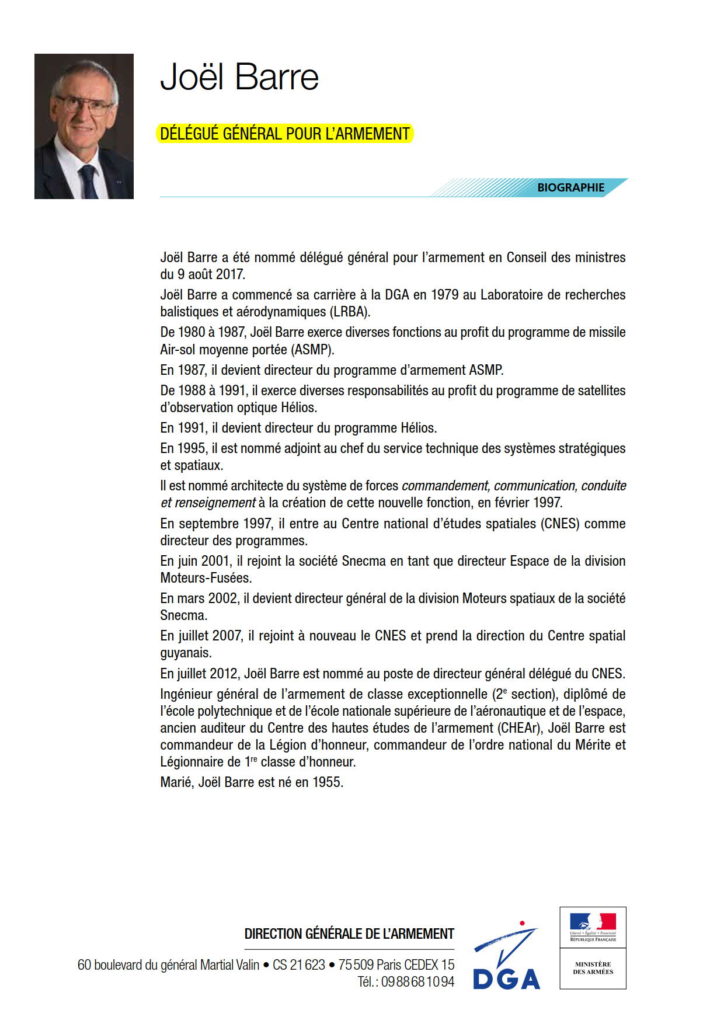
There is a literature that makes the parallel between Communism and Mafia and there is a literature that makes the parallel between militarization and Communism. France seams to gather all the patterns to explain its militarization, its national epuration of the other industrial sectors and a politics that reinforced its armament industry with many small satellite services. If services benefit the armament industry they are good. If services don’t benefit the armament industry they are dead, because the administration will deploy as much energy to sabotage a business as they do to expedite the financing of armament companies. This pyramidal scheme is very similar to a mafia and is surrounded with the same violence.
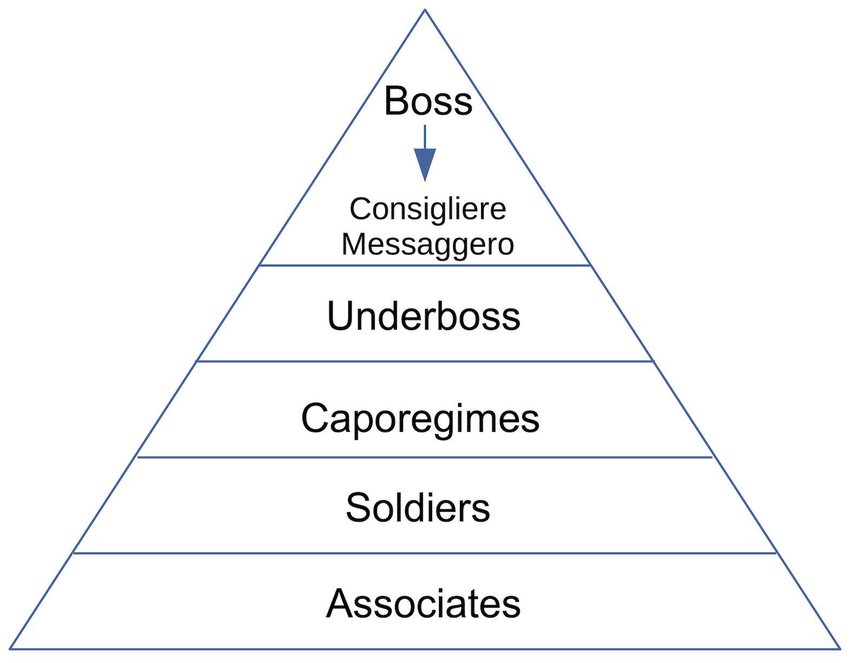
Thales, which is a multinational French company owned by the French State (25.68%) and Dassault Aviation (24.62%), has been suspected several times of a Slush Scheme. France’s State, who owns a casino and a national lottery, has very little distance from the slot to the slush. This distance is the Minister of Finance, who pilots the DGE with the DGA. From a document of the Cambridge University, we can see the role of the “Bookmaker”, a role that the ministry of finance is fulfilling in the scheme of the DGA.
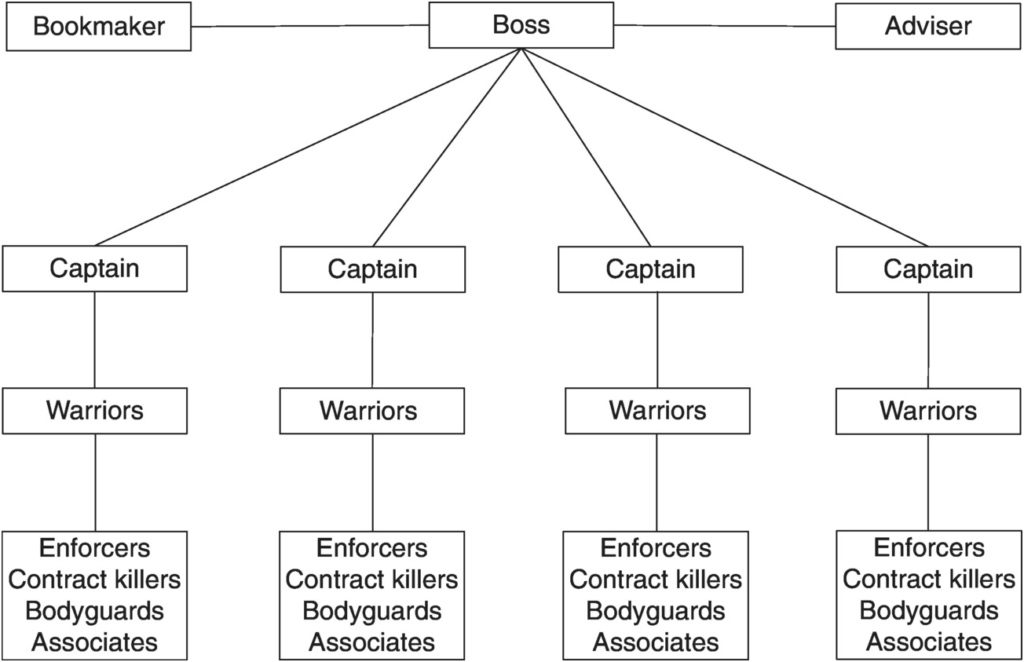
In a document titled “Chiffres Clefs de la Défense 2020” we clearly see how the sector of the economy is literally emptied to benefit the sector of armament.
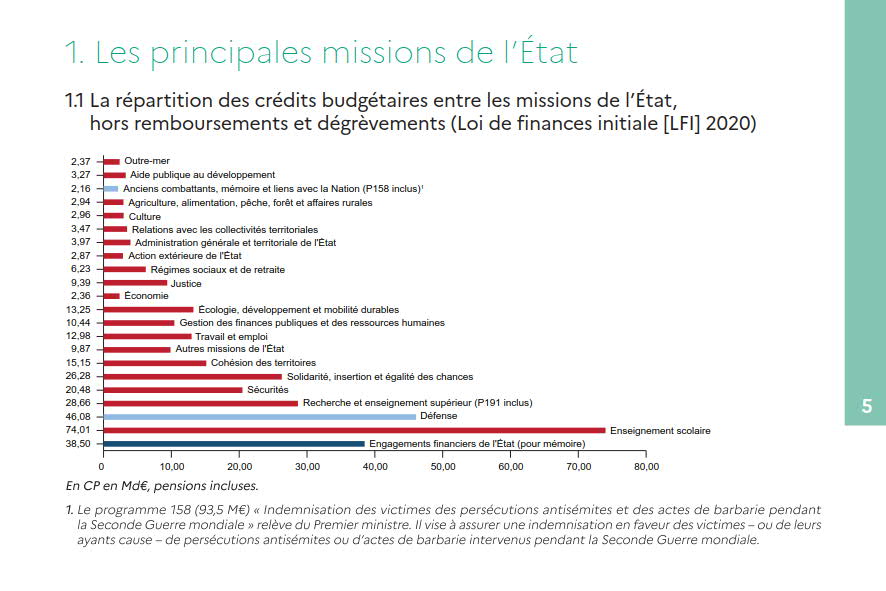
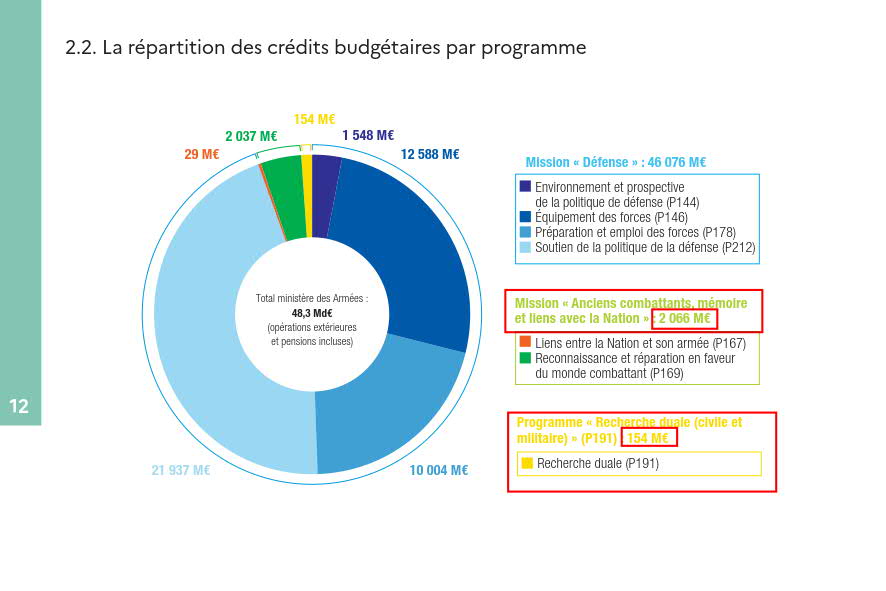
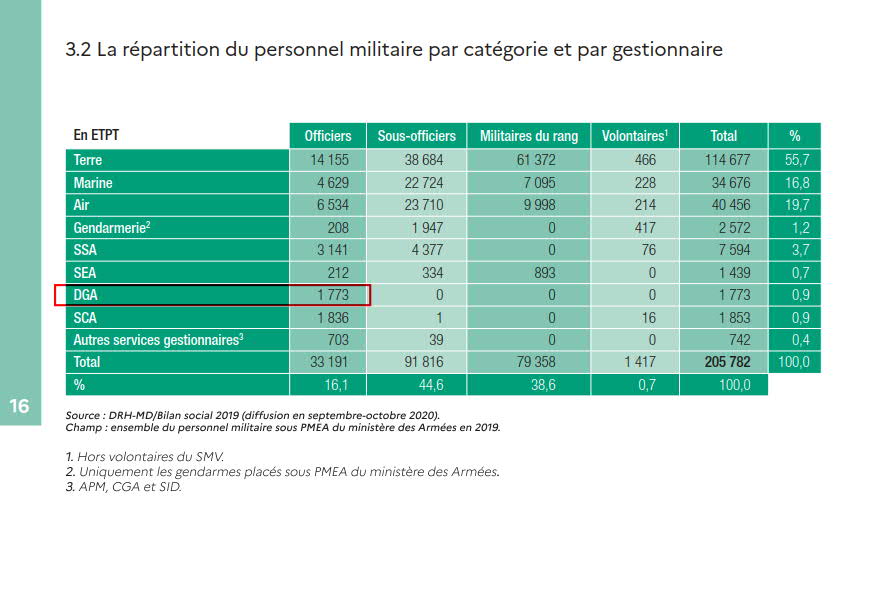
The French Ministry of Defense has produced many documents that only show the disparity of budgets on the French territory and again, the disparity of budgets between the cloud of small 19,000 companies and the “noyau” of 45 MOI (industrial project manager).
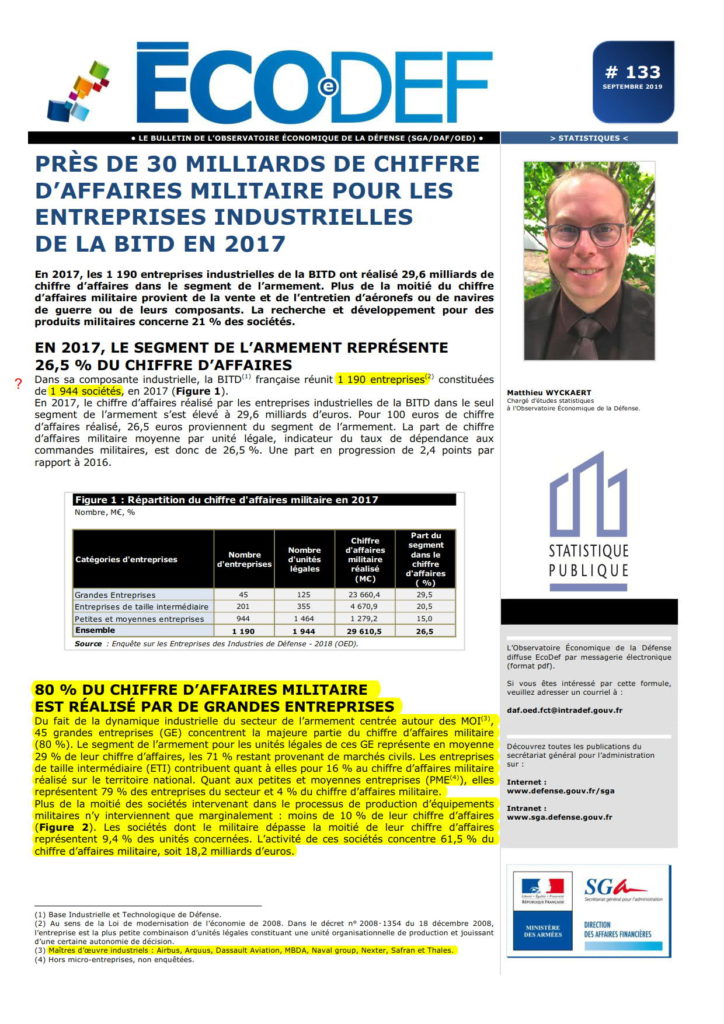
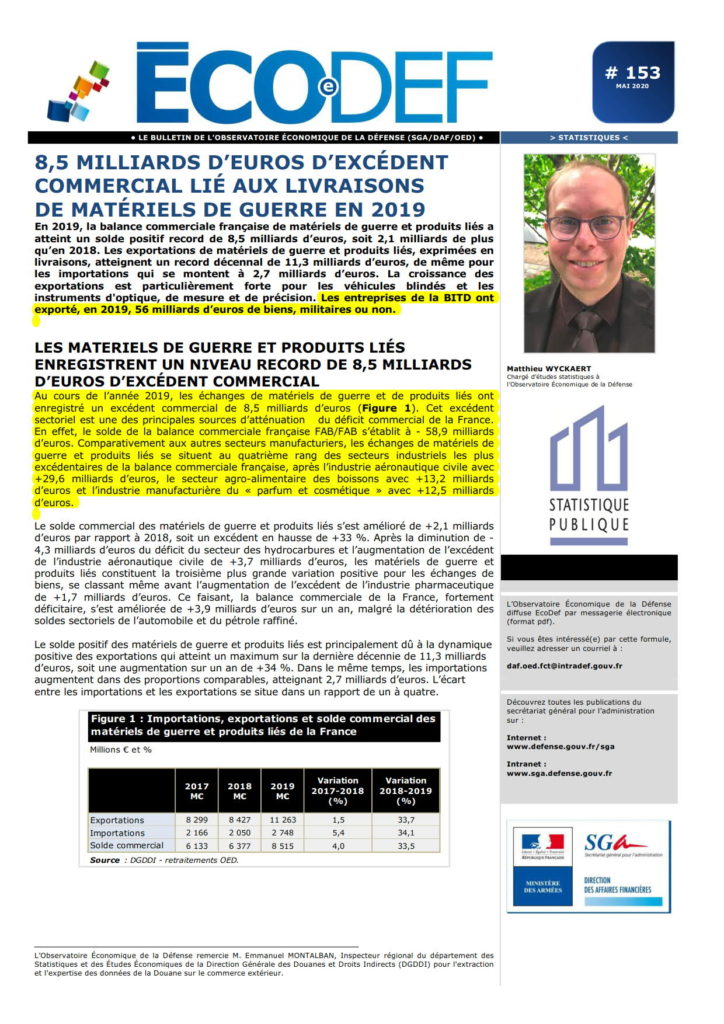
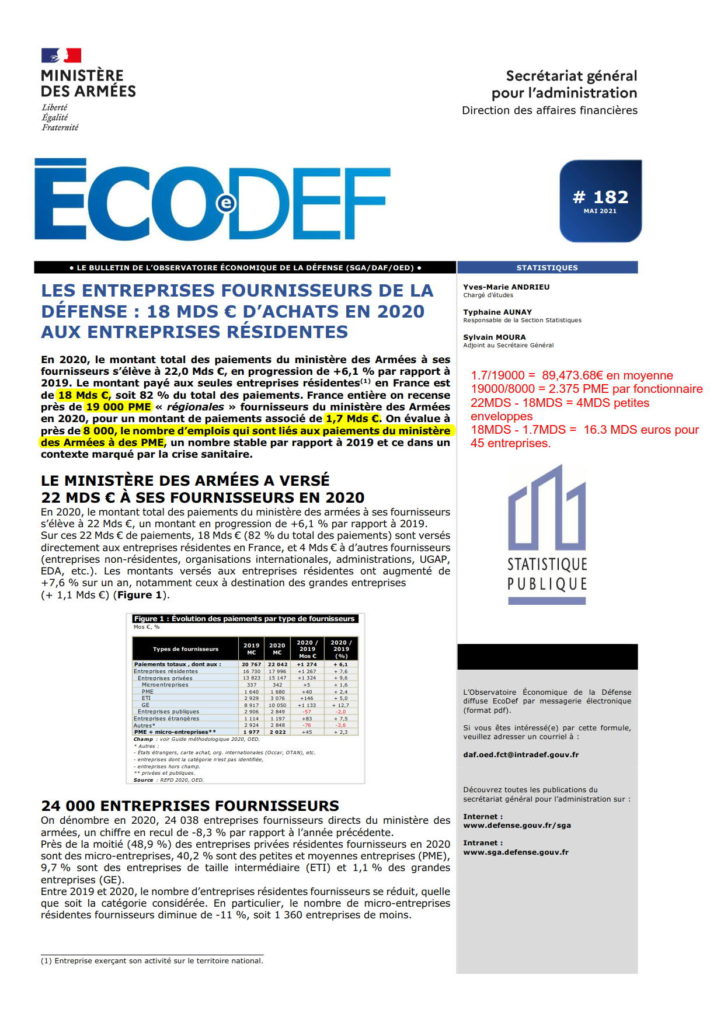
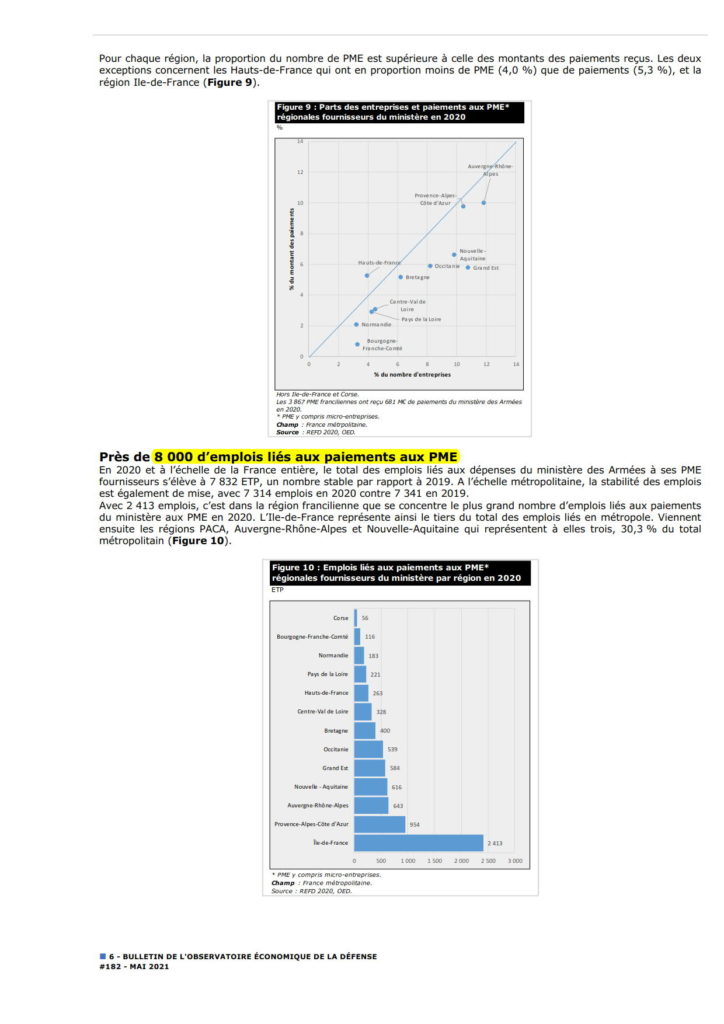
In 2020, the total amount of payments from the Ministry of the Armed Forces to its suppliers amounted to € 22.0 billion, up + 6.1% compared to 2019. The amount paid only to companies resident in France is 18 € bn, or 82% of total payments. As a whole France, there are nearly 19,000 “regional” SMEs supplying the Ministry of the Armed Forces in 2020, for an associated payment amount of € 1.7 billion.
ECODEF n°182 of May 2021
Due to the industrial dynamics of the armaments sector centered around MOI (Maîtres d’œuvre industriels : Airbus, Arquus, Dassault Aviation, MBDA, Naval group, Nexter, Safran et Thales.), 45 large companies (GE) concentrate the major part of the military turnover (80%). […] Intermediate-sized companies (ETI) contribute 16% to the military turnover achieved on the national territory. As for small and medium-sized enterprises (SMEs), they represent 79% of companies in the sector and 4% of military turnover. More than half of the companies involved in the production process of military equipment intervene only marginally: less than 10% of their turnover. Companies whose military exceeds half of their turnover represent 9.4% of the units concerned. The activity of these companies accounts for 61.5% of military turnover, or 18.2 billion euros.
ECODEF n°133 of September 2019
19,000 small and medium-sized enterprises are paid a total of € 1.7 bn while only 45 MOI entreprises share a total of € 18 bn. There is a disproportionate reality that only reflects a misfunctioning system where the tax payers are financing the opacity of an armament business.
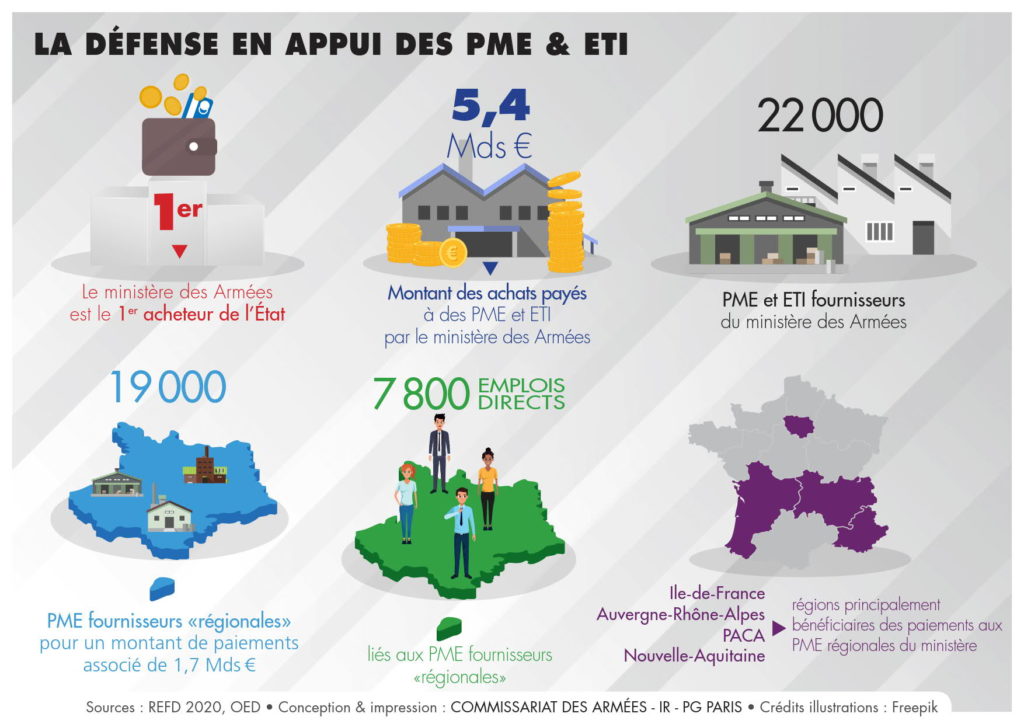
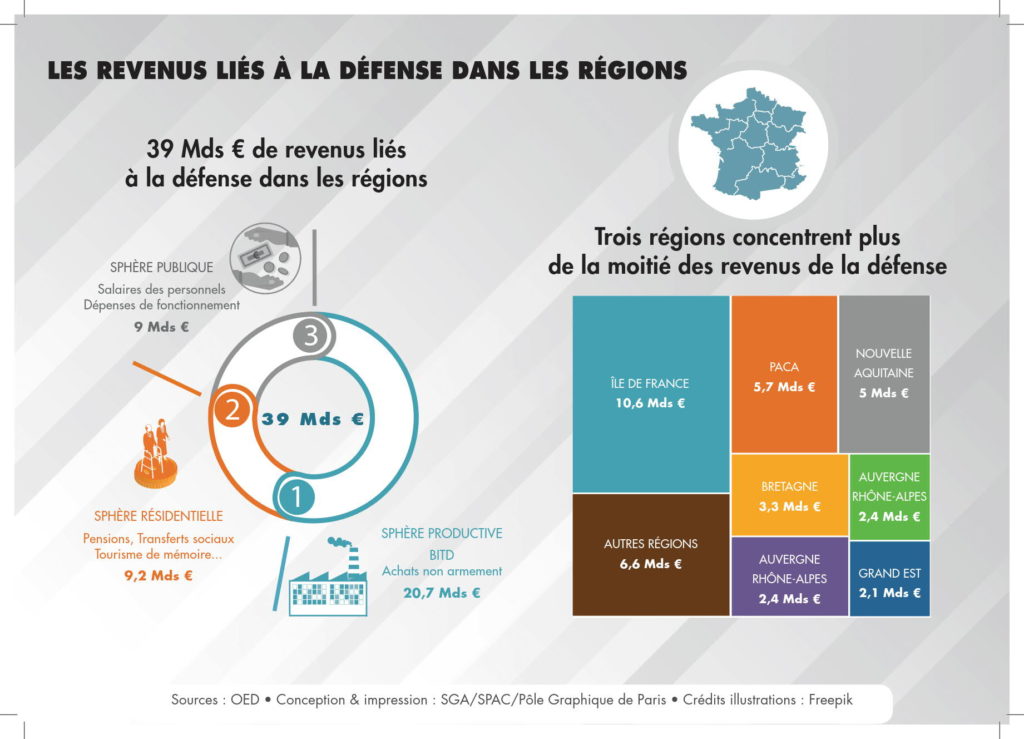
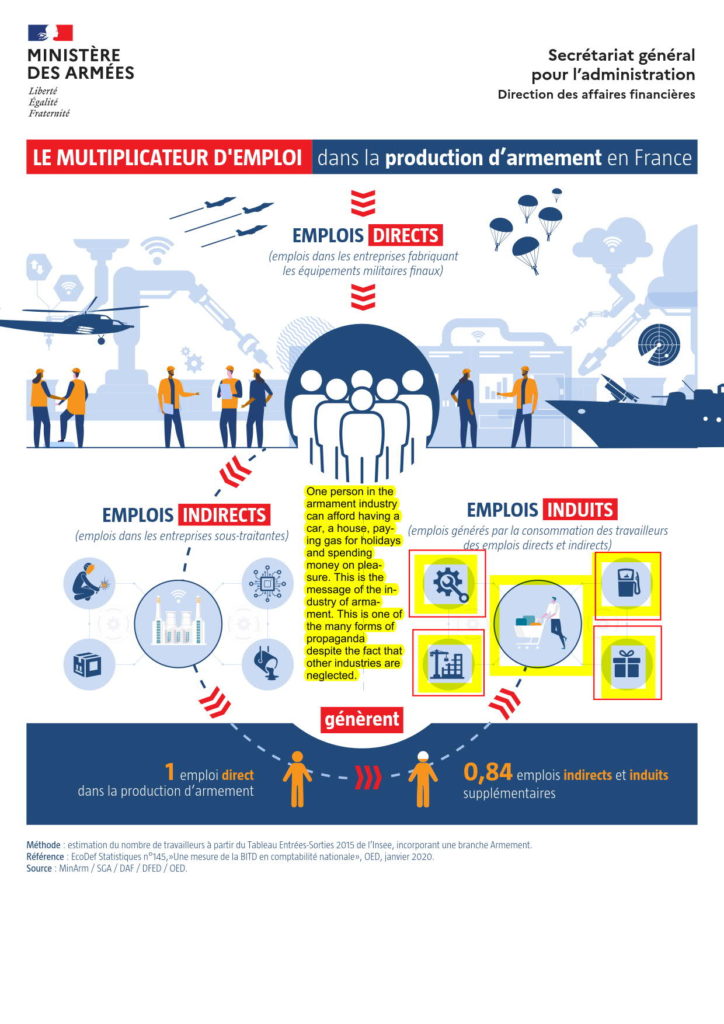
In comparison, the United-States Department of Defense has implemented an “Ongoing DOD Fraud Risk Assessment
Efforts” that “Should Include Contractor Ownership“. This document shows how different layers of ownership may lead to fraud at the tax payers expenses.
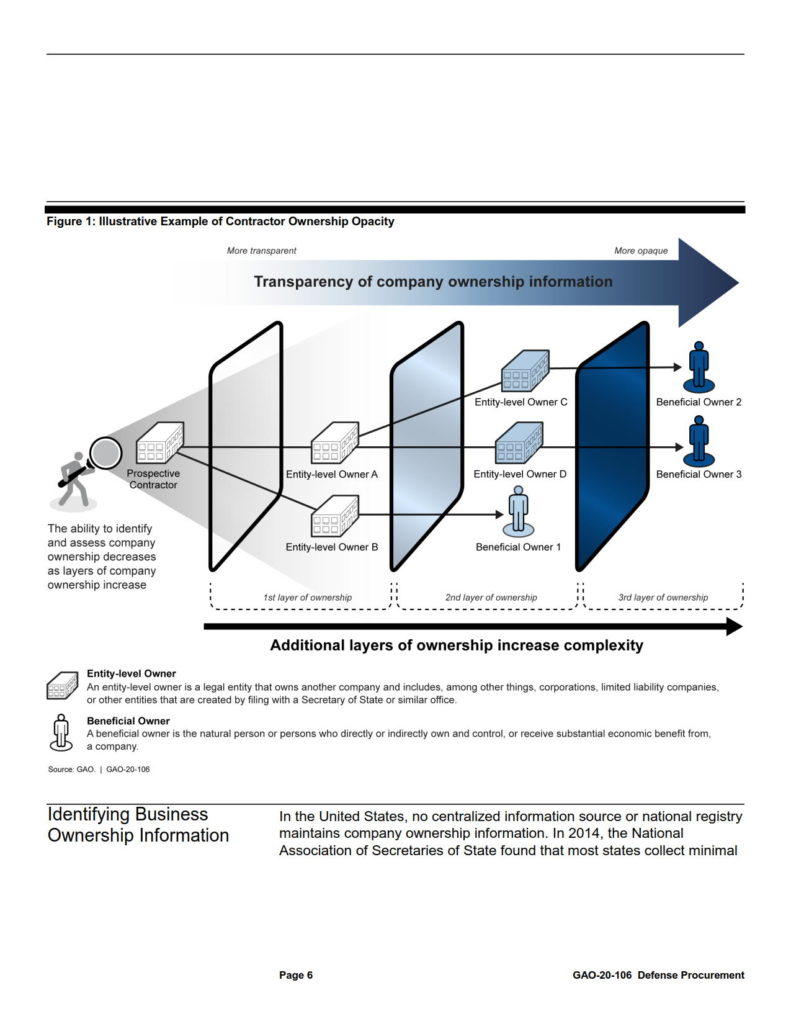
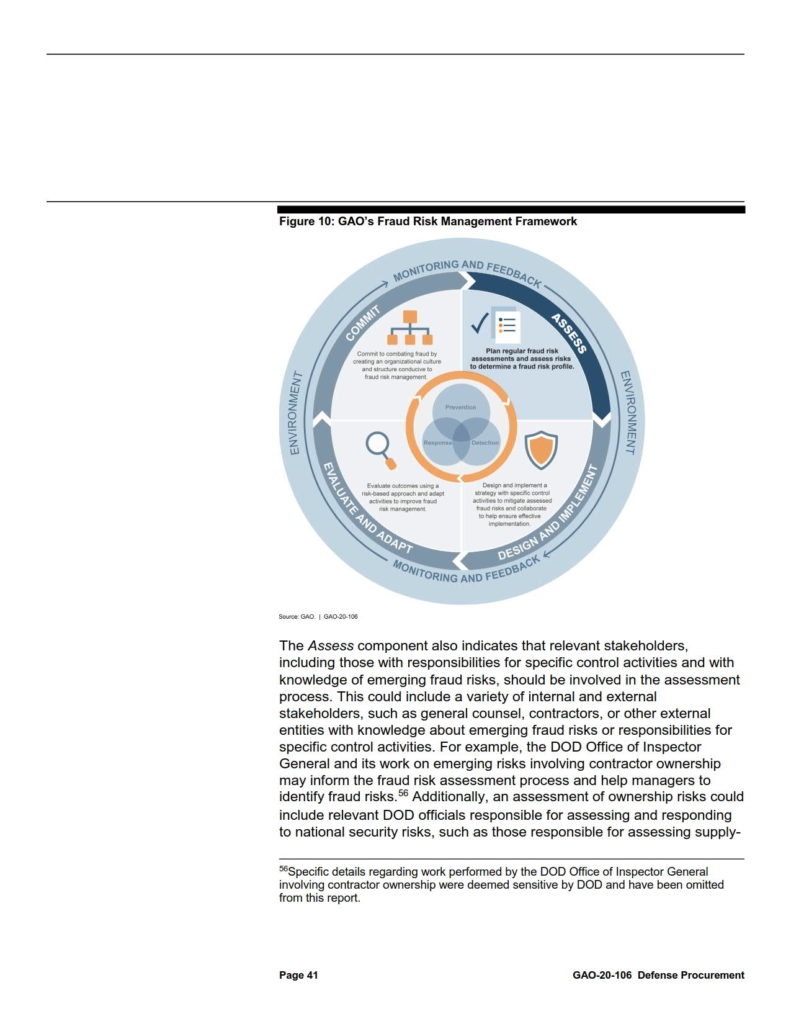
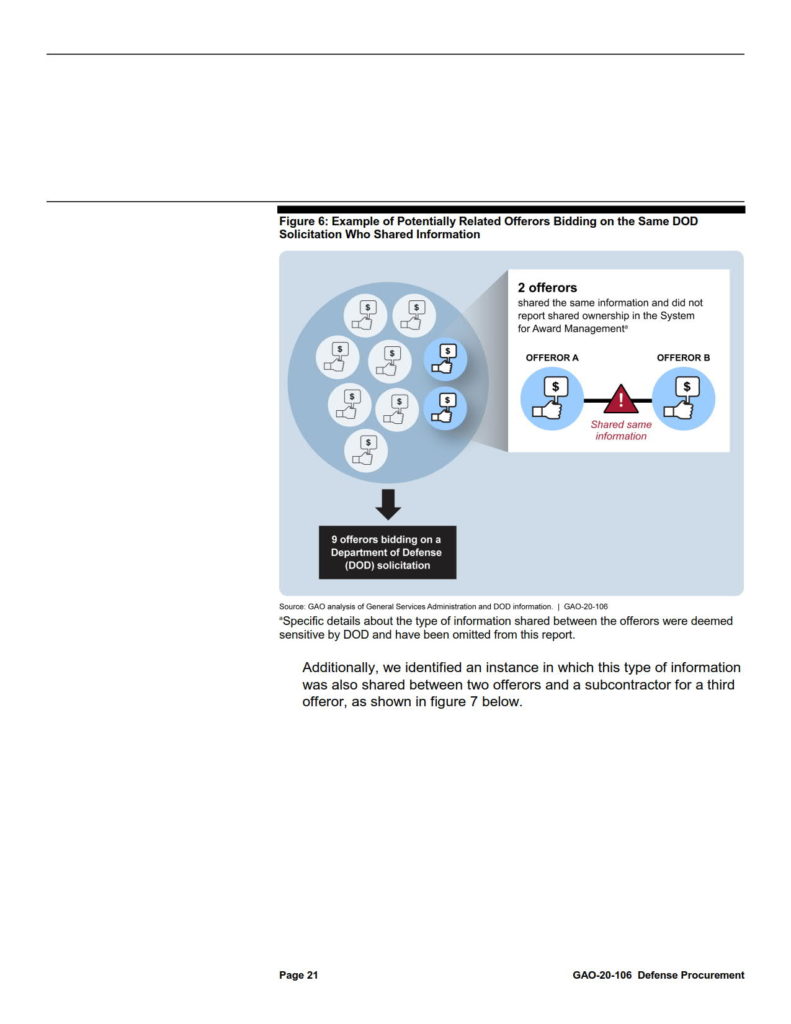
We tend to think of the army as a deployment over seas to protect the national territory, but the deployment of DGA on the national territory shows a very different reality that is not spying on terrorists, but on business owners and their companies, their employees and their innovations. Every operations of small companies, either they work for armament or not are scrutinized and tested before the DGA comes with directions and eventually funds. But the reality is also a politisation to access information through funding. The DGA can use funding to create a debt, the debt can be used to sabotage a business and as we have seen in many sectors, to discourage business owners from social, technical and financial innovation. The purpose of the DGA is to control and it has the funds to disrupt and discourage any business that would not be representative of its politics.
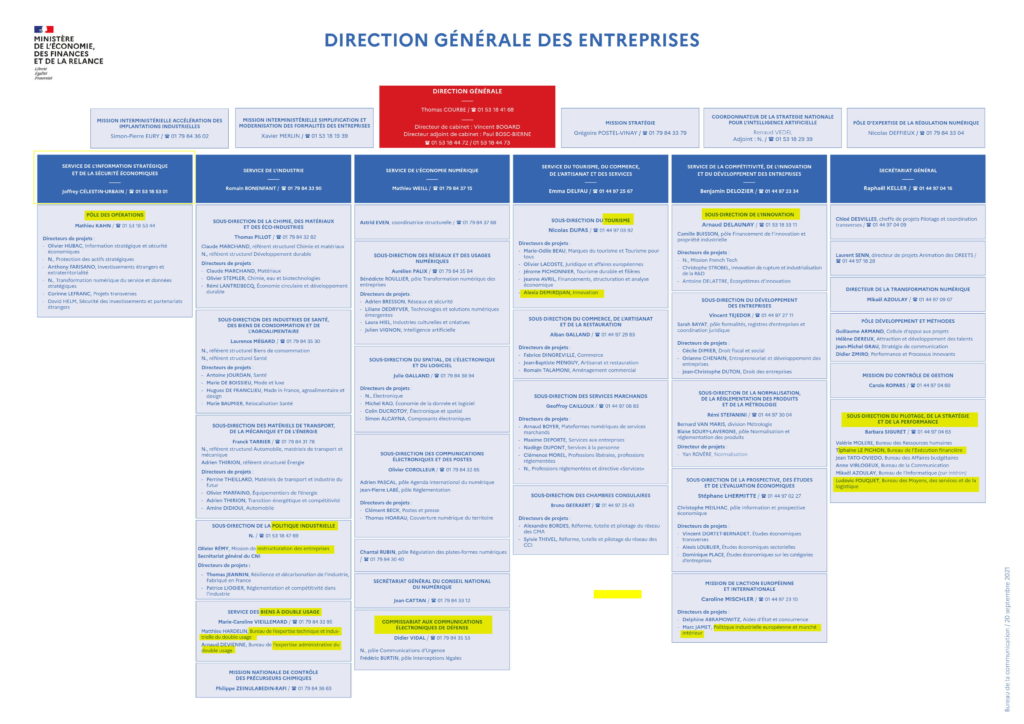
The reality creates a context that is difficult to bear and sustain for small and independent companies. The context makes innovation difficult and as much risky as going into politics, because the fundamentals of a business is to manage ideas, clients, employees, fulfill a dream or a vision, invest into a project, create a small evolution by inventing new products and new systems. When the environment becomes hostile, expensive, relatively isolated because of the context, when companies cannot trust the administration and not even the very core of the state, its structure, when the environment is unstable and always changing, when business owners feel having a boss or bosses who are not taking the risks with their own money, but the public money, when there are fears and threats, and constant administrative harassment, then industries close and new ones do not open.
The gap between the number of factory openings and the number of closures narrowed in 2015, but it remained negative. The number of jobs created per factory is decreasing. In 2015, plant closures continued to decline (-13%) but openings also fell by 11%.
Page 10 of https://www.entreprises.gouv.fr/files/files/01-nouveau-portail/secteurs-d-activite/industrie/politique-industrielle/rapport-activite-rui-2015.pdf
France may sound like a heaven for employees because of the Social Security System, full medical coverage, assistance at every levels, home, wage, food, etc… but it has made it difficult for business owners (who pay taxes but don’t benefit from them) to create companies, develop them and make them wealthy. The term “wealthy” in France is taboo as if someone would be stealing money and despite having made the revolution, the French people dream and crave for a feudal pyramidal system with a boss, a large boss with a large basement and a hierarchy that counts on soldiers to find the money somewhere, because the DGA and the DGE system come with a cost where the red area pays for the blue one. The following map shows the level of suicides and it could almost be a political map. With a feudal system of 45 large companies, the French army has killed half it ressources, with women on the front lines.
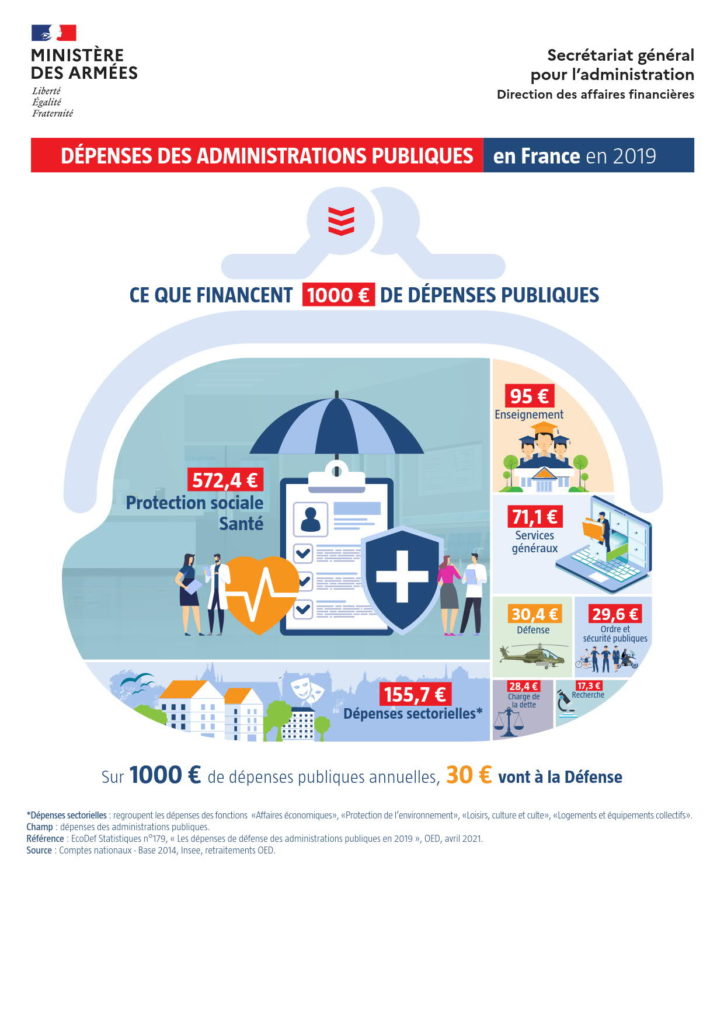
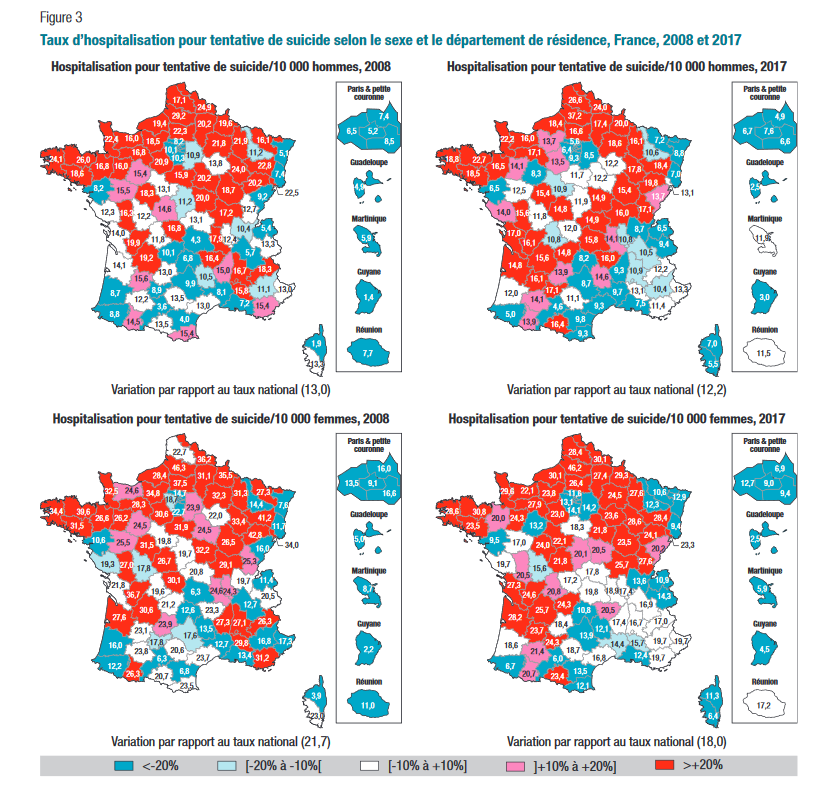
When we compare the health of France (n°64) with the United-States (n°20), the United-Kingdom (n°7) and New Zealand (n°2), we clearly see how France government expenditure is eroding the country, not only the finance, but also industries, service companies and people. When, at the top of that, we add the surveillance and militarization context, we find the portrait of a country that is sliding toward fascism, incoherent politics, violent reactions and an increasing risk of escalating into conflicts, because France was once a colonial country and is still counting its days in reference to the past.
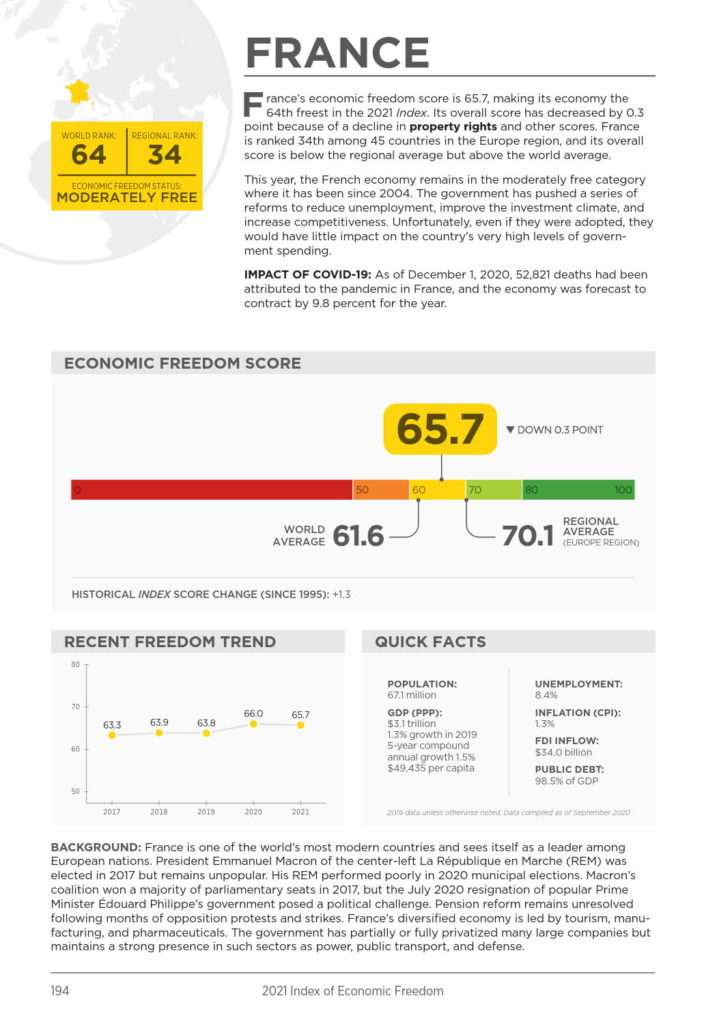
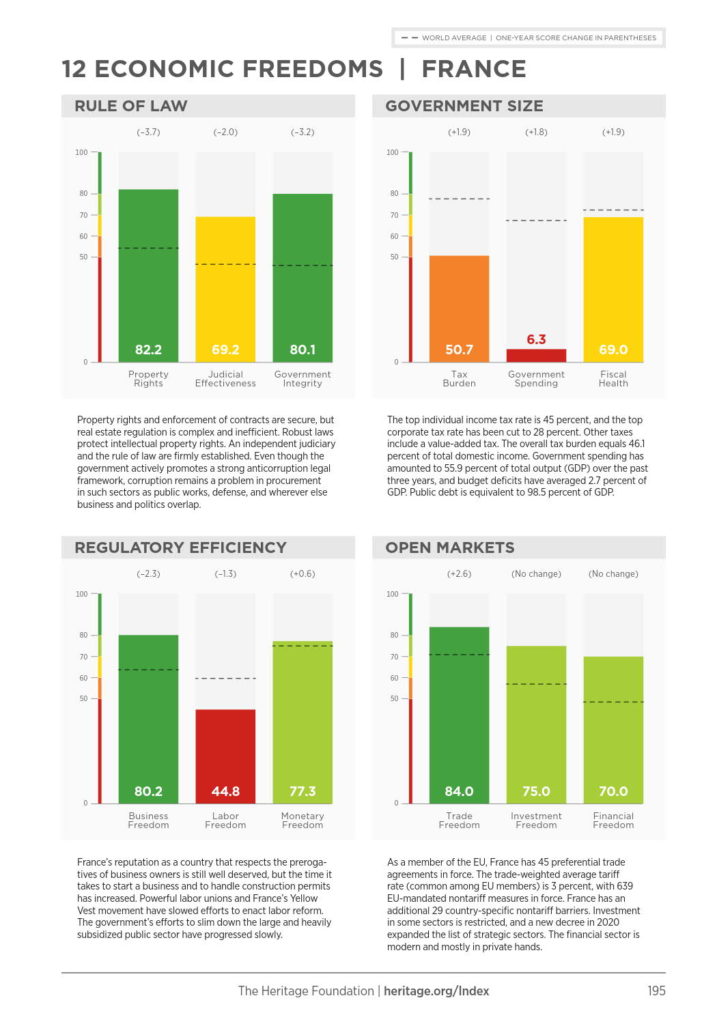
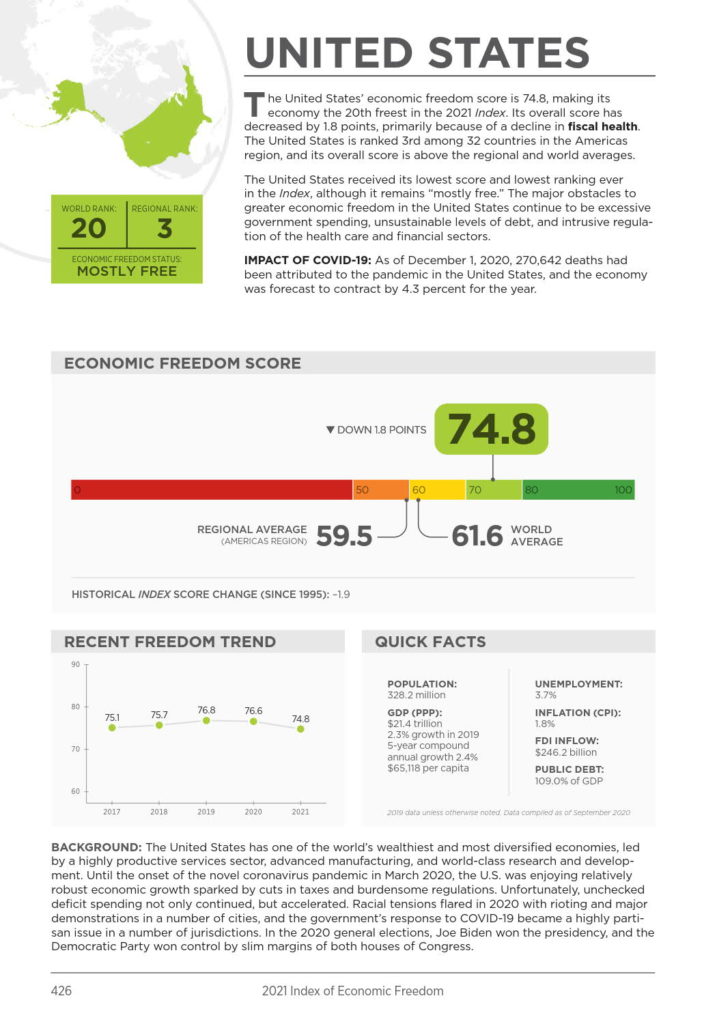
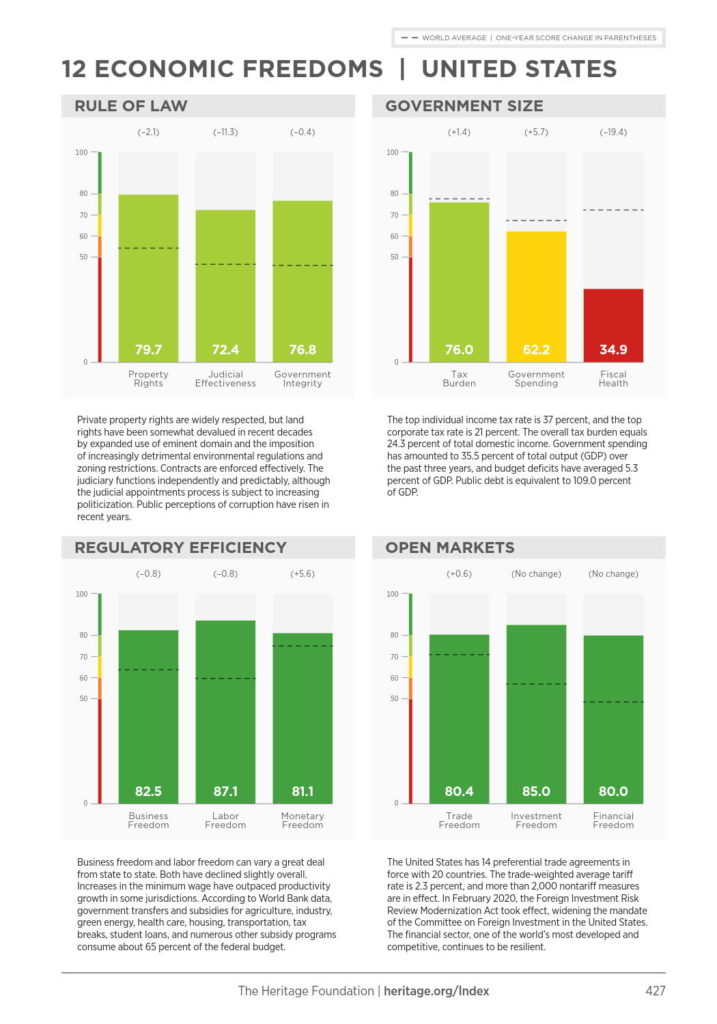
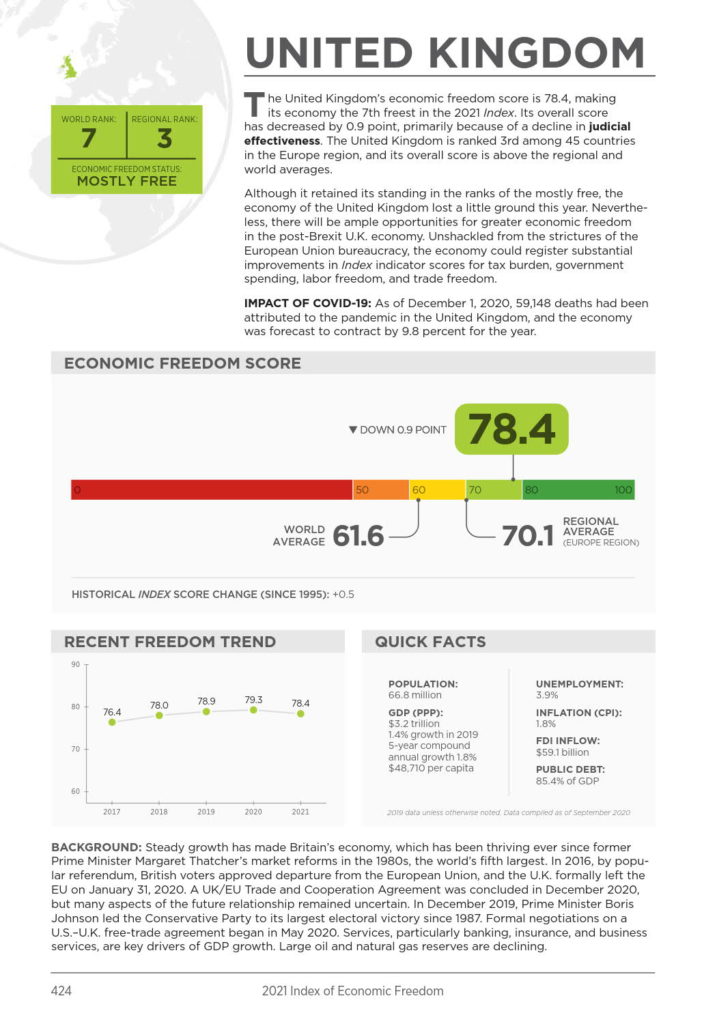
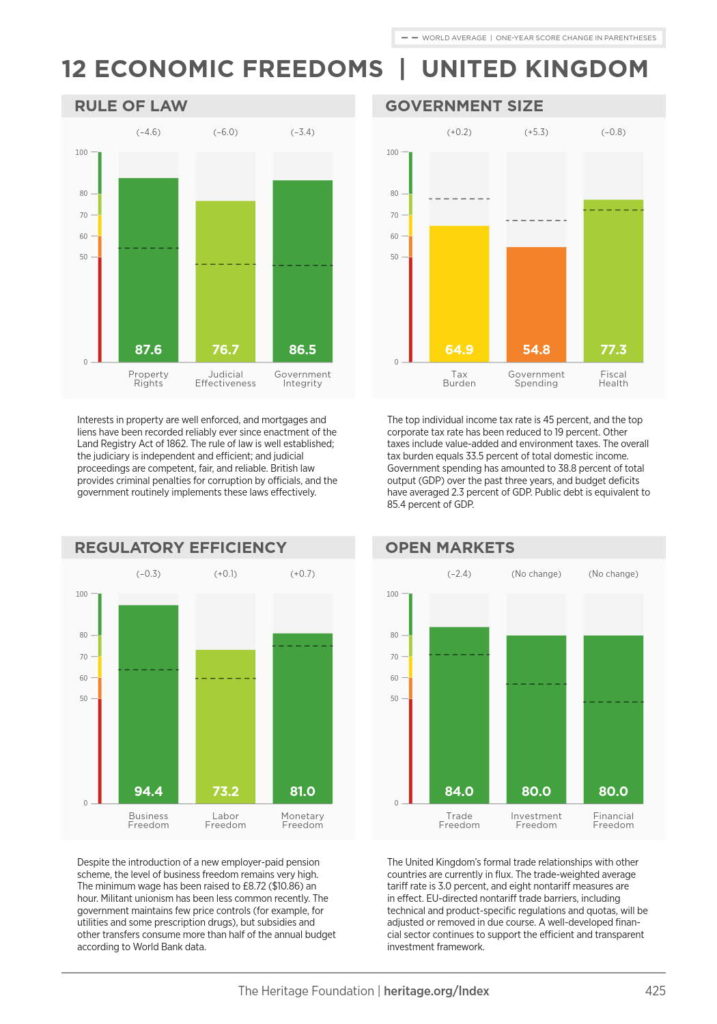
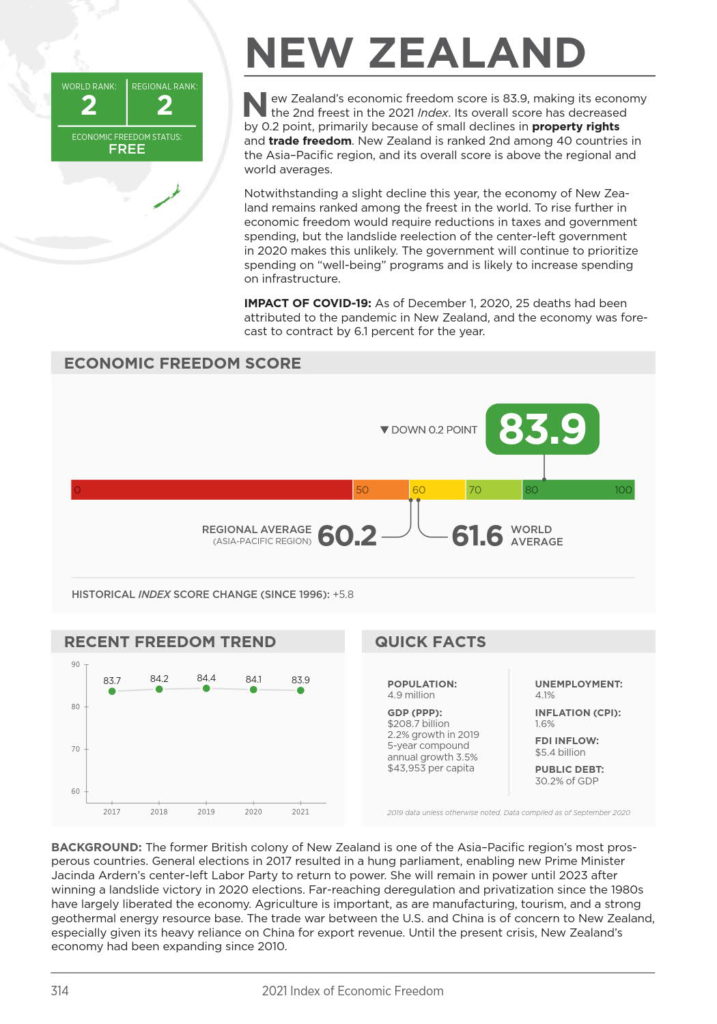
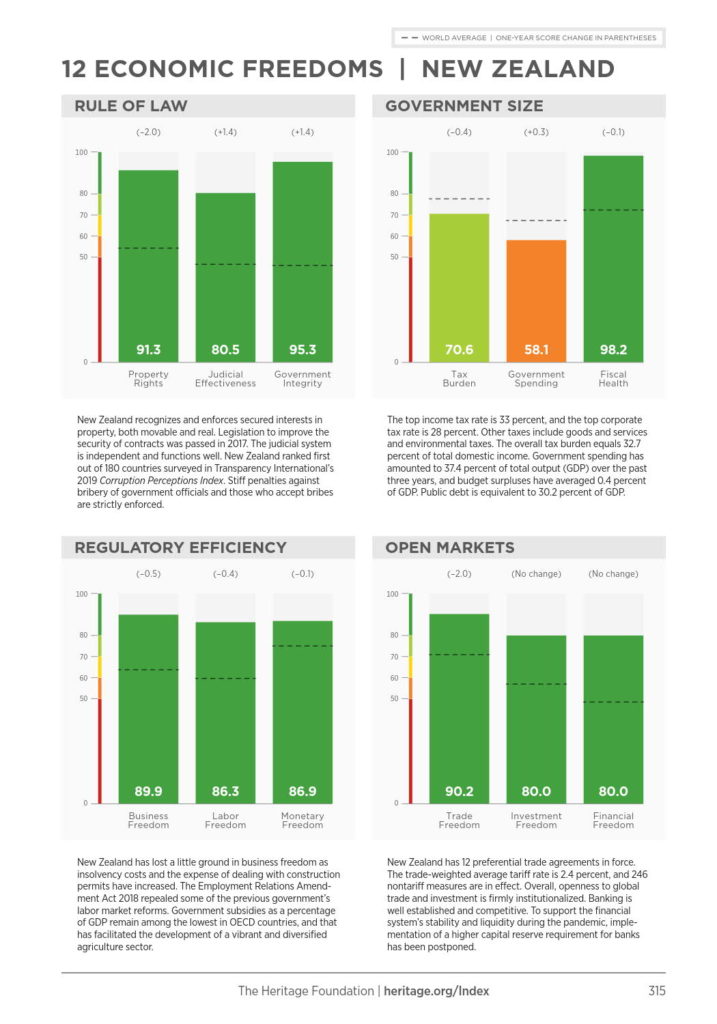
While intellectual property in France is already fragile, the DGA is taking control over the patent administration in a context, again, that shall raise question on the advantage France might want to take over independent inventors. If you read “Les Branquignols” you will find one case study where a company finds itself under attack led by “agents” of the French organization.
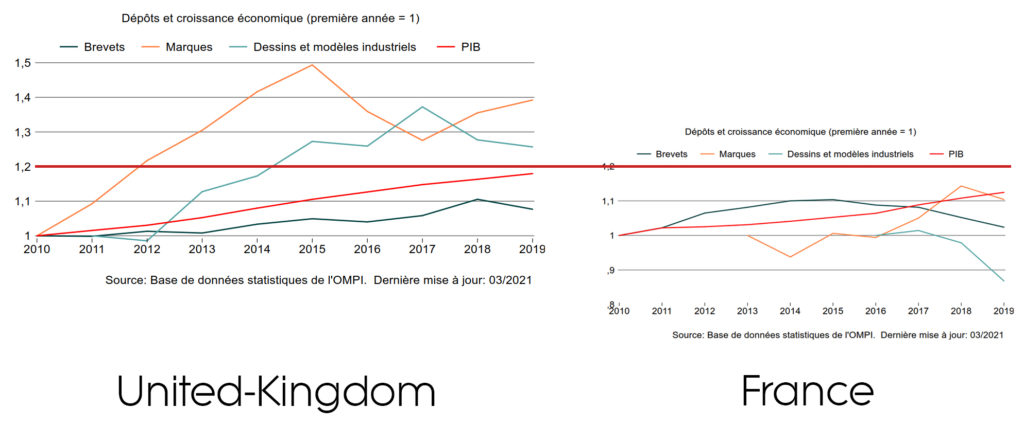
The militarization of France comes with an additional political danger which lays in the propaganda. The Senate document n°605 shows that banks and the financial system are directly targeted, being accused of letting down the industry of armament. Small companies, which are called the “pepites” are suspected of receiving foreign investments and in a larger proportion, any business that would sustain a form of capitalism (patents, dividends, shareholders, partnerships) and of relative independence would find itself under the militarized and politicized scrutiny of the French pyramidal system.
In a context where France and the 45 MOI of the armament industry are colluding with foreign powers such African states and China, questions emerge on the financing of the armament industry, the security of those buyers and the security of France itself, its integrity and its role in an international context. As described in “Les Branquignols“, the proximity of events between French presidential elections and the transactions between ERAMET and Tsingshan China question if France is politically independent.
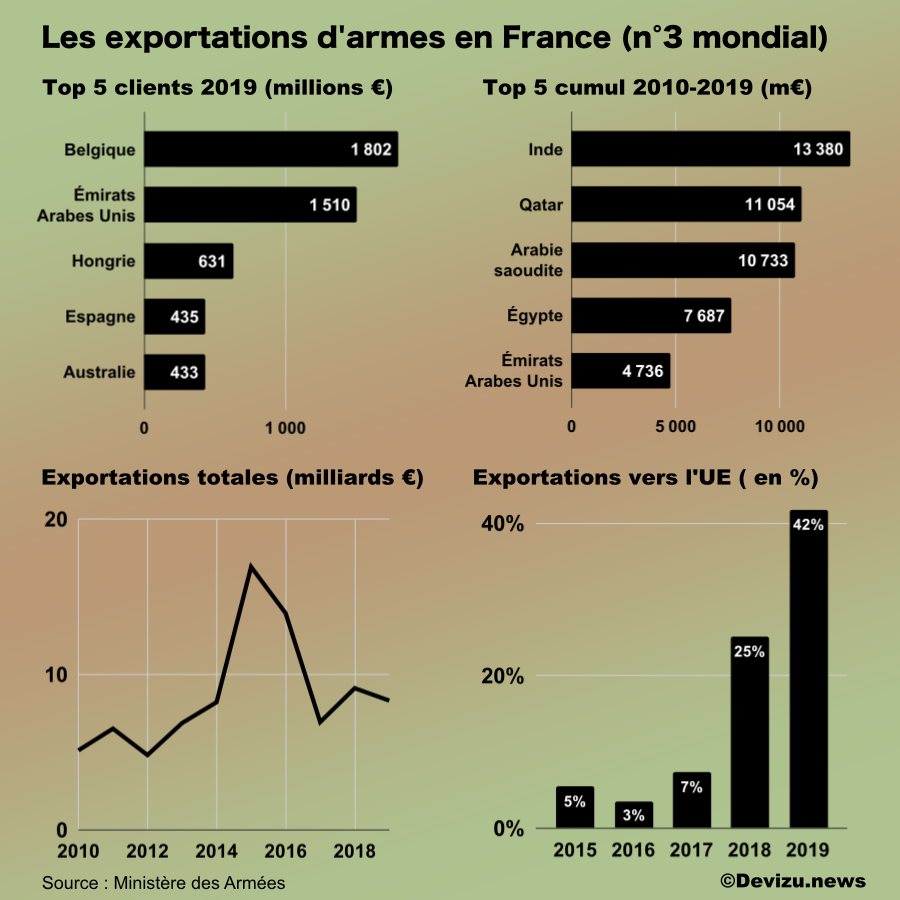
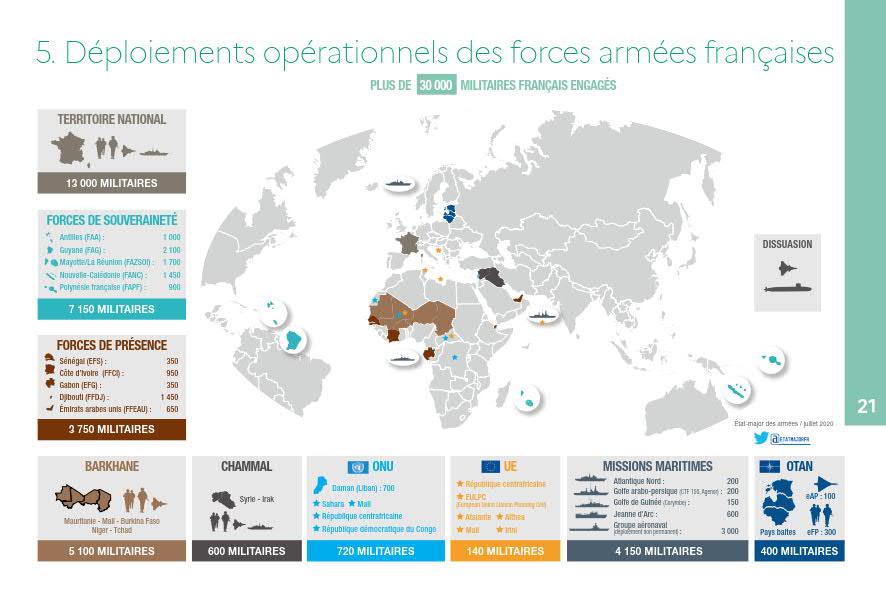
The armament propaganda comes in the same context as increased racialization and religious conflicts. The propaganda reproduces an ideology that we find in the “statuts du Parti communiste français” with a terminology inherited from the same “base”. The “B” of “BITD” (Base Industrielle et Technologique de Défense) stands for base, again in a context where the only last industry of the country is militarized. We shall not minimize either the desire from an army to play the game of empires with “RUI” agents that slightly ressemble with “ROI”, the king, his knights and his army. There is clearly an instrumentation of the army to militarize industrial sectors and influence the politics in favor of an increased control over the French people, their businesses, their resources and their wealth.
When we cross the dots between the different documents, we see that there is an army of “agents”, “référents” and “délégué” from the DGA to coordinate 8000 soldiers on the national territory only for paying large and small companies. The disparity between large and small companies is € 1.7 bn for 19,000 SMEs against € 18.2 bn for 45 MOI, a difference 4,520.26 times higher for large companies and in average, smaller companies receive € 89,474 invoiced to the ministry of defense. While we can question the purpose of larger amounts, we shall also wonder about the reality of small businesses that would sustain a mega industry with charging only micro amounts. € 89,474/SME for an industry of this size is not significant of an industry and we shall wonder which part is paid and for what kind of products.
Comparing the different regions of France from “L’activité 2015 des référents uniques pour les investissements“, the potential publicized and the reality financed shall question the level of influence induced from the DGE.
| Potential | Potential | Potential | Potential | Reality | Reality | Reality | |
|---|---|---|---|---|---|---|---|
| Region | N° of projects | Amount in €M | Jobs created | Ratio M€/job | N° of projects | Amount paid | M€/project |
| Alsace | 29 | 603 | 695 | 0.86 | 26 | 162 | 6.23 |
| Aquitaine | 20 | 684 | 1534 | 0.44 | 10 | 134 | 13.4 |
| Auvergne | 10 | 143 | 422 | 0.33 | 18 | 348 | 19.33 |
| Bourgogne | 11 | 58 | 434 | 0.13 | 59 | 2631 | 44.59 |
| Bretagne | 11 | 198 | 878 | 0.22 | 24 | 193.7 | 8.07 |
| Centre | 35 | 167 | 687 | 0.24 | 37 | 272 | 7.35 |
| Champagne Ardenne | 18 | 636 | 261 | 2.43 | 13 | 236 | 18.15 |
| Corse | |||||||
| France Comté | 9 | 94 | 625 | 0.15 | 33 | 644.34 | 19.52 |
| Ile de France | 33 | 872 | 1859 | 0.15 | 11 | 58 | 5.27 |
| Languedoc Rousillon | 19 | 330 | 1040 | 0.31 | 23 | 357 | 15.52 |
| Limousin | 9 | 66.2 | 212 | 0.31 | 31 | 455 | 14.67 |
| Lorraine | 13 | 216 | 917 | 0.23 | 36 | 263 | 7.30 |
| Midi-Pyrénée | 25 | 590 | 1368 | 0.43 | 11 | 263 | 23.90 |
| Basse Normandie | 33 | 1072 | 1260 | 0.85 | 10 | 254 | 25.4 |
| Haute Normandie | 24 | 1200 | 1800 | 0.66 | 44 | 1045 | 23.75 |
| Nord Pas de Calais | 19 | 291 | 2238 | 0.13 | 49 | 1369 | 27.93 |
| PACA | 13 | 270 | 650 | 0.41 | 8 | 53 | 6.62 |
| Pays de la Loire | 26 | 336 | 775 | 0.43 | 56 | 1723 | 30.76 |
| Picardie | 11 | 101 | 242 | 0.41 | 19 | 1000 | 52.63 |
| Poitou Charente | 12 | 64 | 360 | 0.17 | 64 | 900 | 14.06 |
| Rhone Alpes | 15 | 223.6 | 565 | 0.39 | 21 | 590 | 28.09 |
| TOTAL | 395 | 8,214.8 | 18,822 | 0.46 av. | 603 | 12,951.04 | 19.67 |
We see that there are 8/21 regions which are above the average of € 19.67 M/ project. Consequently, there are 13 regions below the average. If we divide € 19.67 M/ project by two, the number of regions with an average of project below € 9.83 M/project are six, Alsace, Bretagne, Centre, Ile-de-France, Lorraine and PACA. The 8 regions above the average of € 19.67 M/ project are Bourgogne, Midi-Pyrennée, Basse Normandie, Haute Normandie, Nord Pas de Calais, Pays de la Loire, Picardie, Rhone Alpes. We see that one million euros creates a potential of 42.76 jobs. We see that for the creation of jobs, only 4 regions are above the average of € 0.46 million/job. The 4 region above the average of € 0.46 million/job are Alsace, Champagne Ardenne, Basse Normandie, Haute Normandie.
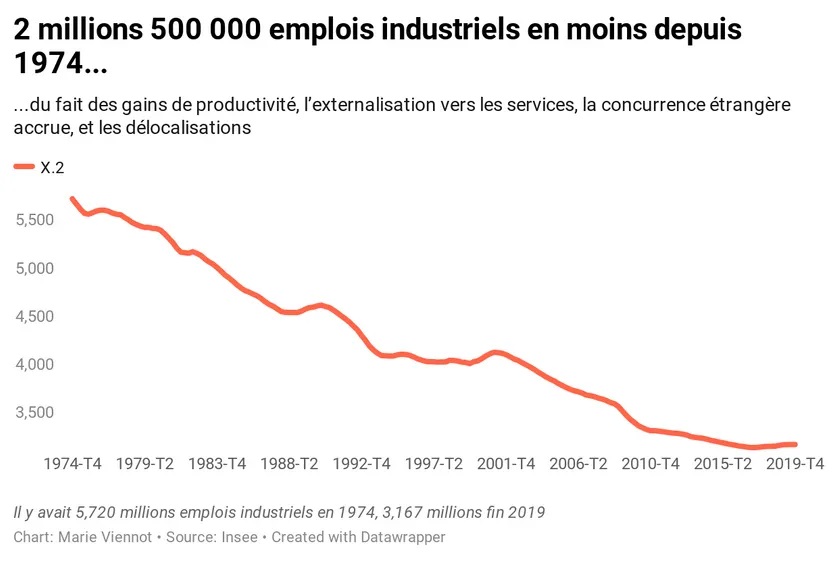
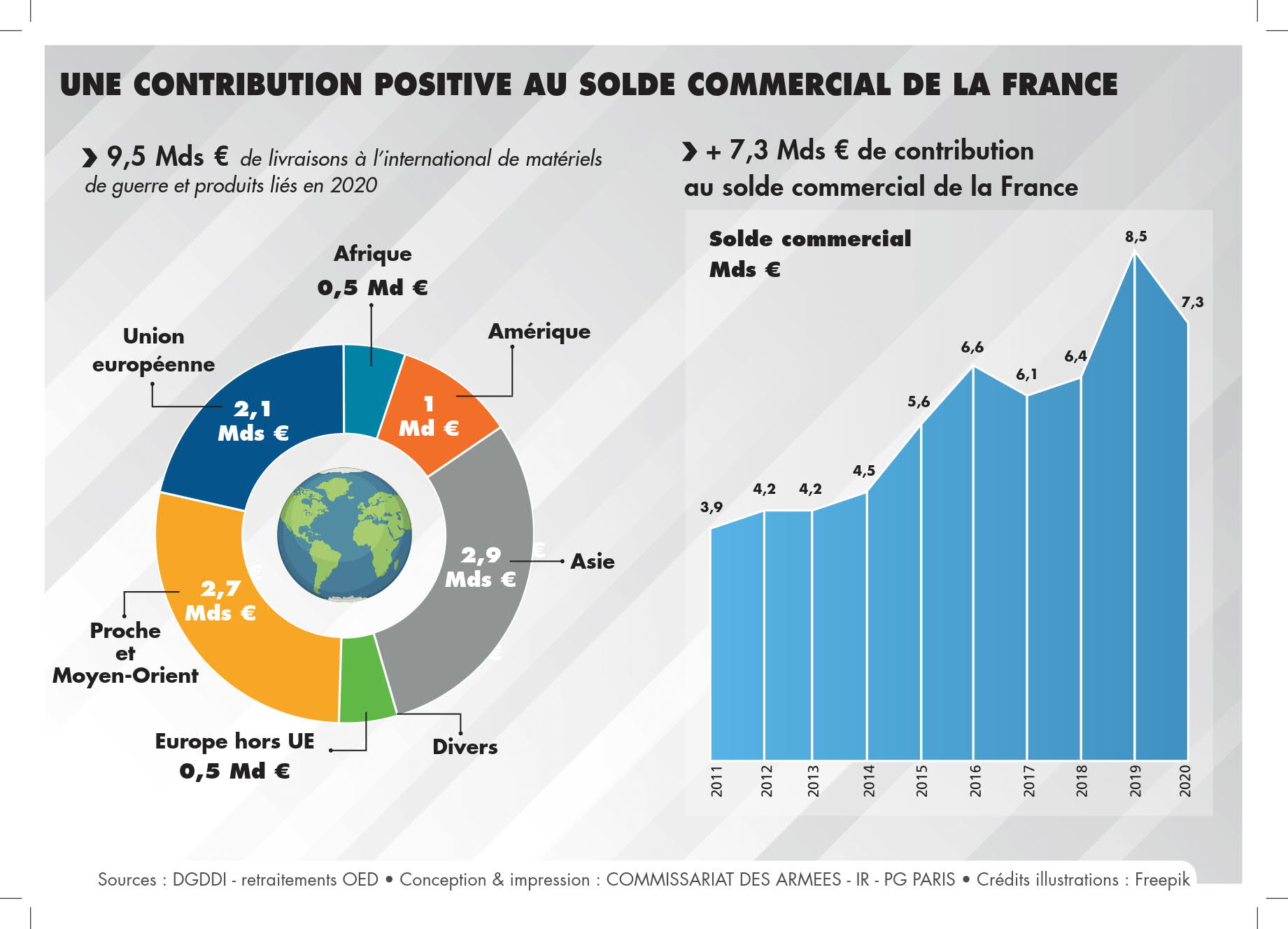
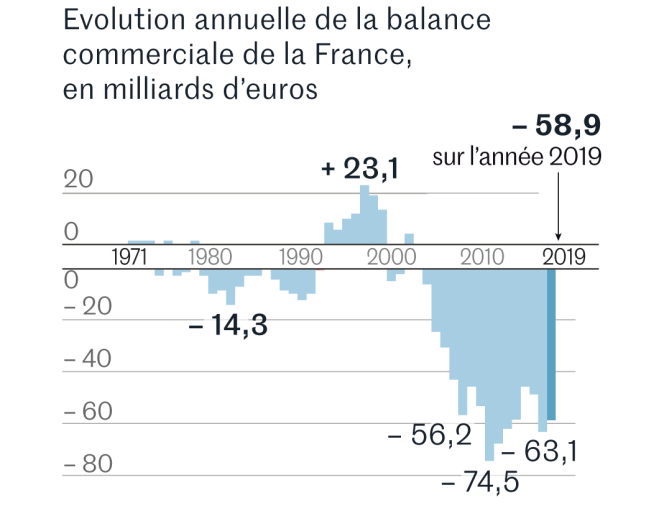
With as much as an average of € 0.46 M/job created (€ 460,000) we can wonder why the creation of jobs does not reflect with the creation of machines, and such, with a re-industrialisation from the production of tools. The industry of armament has created “industrial services” with the purchase of machines and the training of employees on those machines, but the industry of armament has not created the tools resulting in the manufacturing of those machines. With € 460,000 expenditure on each job, this is as much expense in the commercial balance where France imports industrial equipment before it can even start to produce anything. The comparison of the two graphs between employment and exports show that each of the € 460,000 expense on jobs had very little effect to stop the decline of industrial employment while on the third graph, the commercial balance has plunged during the same period as the development of the BITD. We can explain the negative balance simply by the fact that one “job” indeed is not a “job” but a “workplace” with the cost of the imported machines to deploy “industrial services”. By “industrial services” I mean workers who would use an industrial machine the same way as they would use a computer, without any local industry to produce the computer itself. The worker is a user, not a manufacturer as part of a global industry.
As a result of those numbers, other than showing the acceleration of decline of the commercial balance, we shall remember the purpose of weapons and the responsibility of France to arm civilians and armies. In “Exportations d’armement : le rapport au Parlement 2019“, between 2009 and and 2018, France has exported for 86,226 millions euros of weapons what represents an average of 9,580.66 millions each year. This is the annual budget for Justice in France and 20.78% of the budget of Defense.
Total Amérique centrale et Caraïbes : € 607.4 M
Total Océanie : € 793,9 M
Total Asie centrale : € 1 096,0 M
Total Afrique subsaharienne : € 1 310,6 M
Total Afrique du Nord: € 1 445,8 M
Divers : € 1 964,8 M
Total Autre pays européens : € 2 567,6 M
Total Amérique du Nord: € 2 834,2 M
Total Asie du Nord-Est : € 3 416,6 M
Total Asie du Sud-Est : € 6 205,6 M
Total Amérique du Sud : € 6 307,3 M
Total Union européenne : € 7 163,9 M
Total Asie du Sud : € 14 290,0 M
Total Proche et Moyen-Orient : € 36 222,2 M
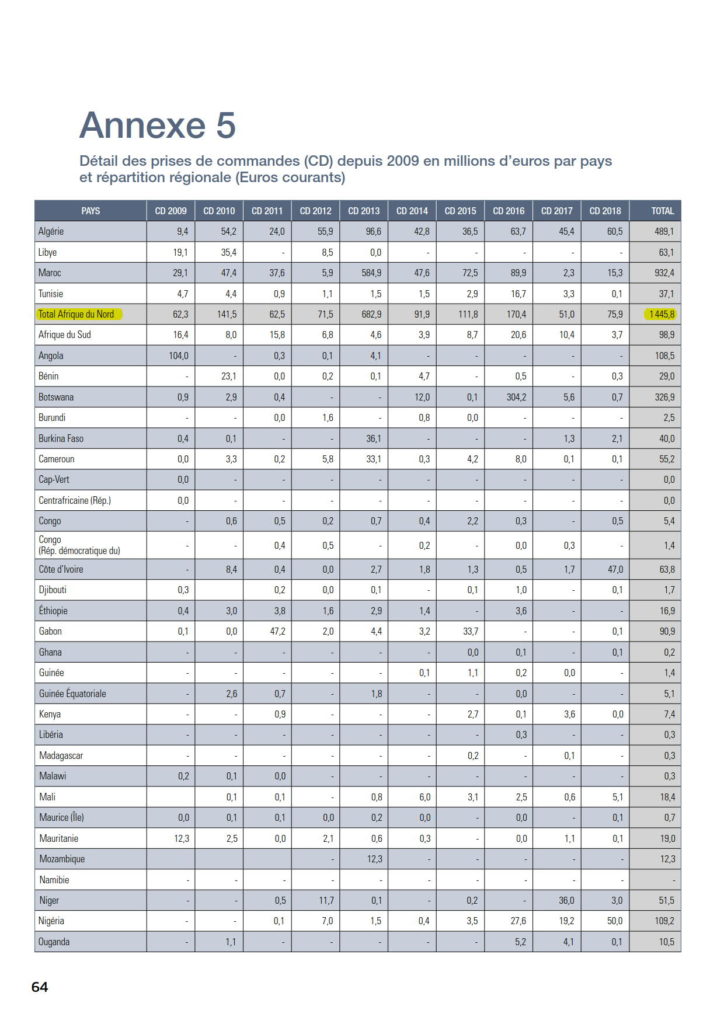
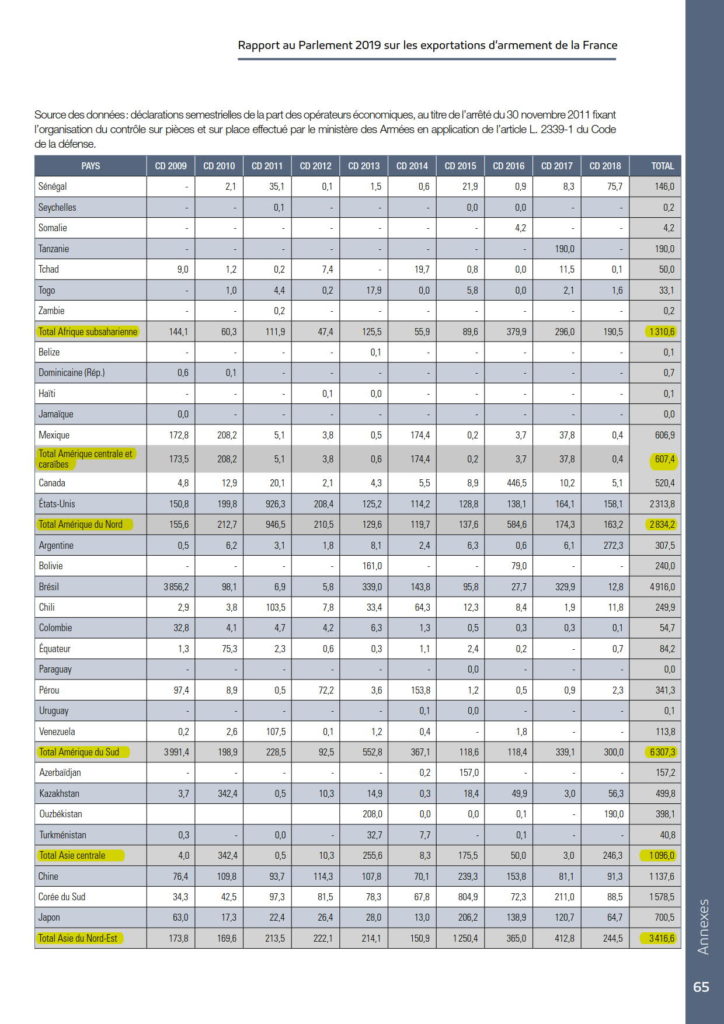
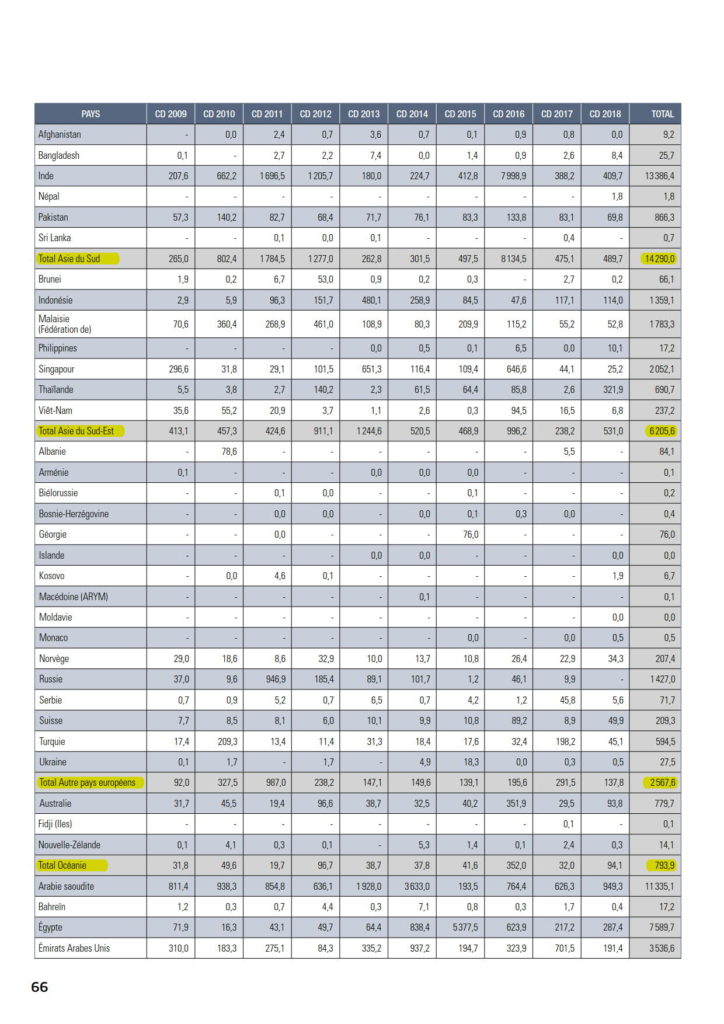
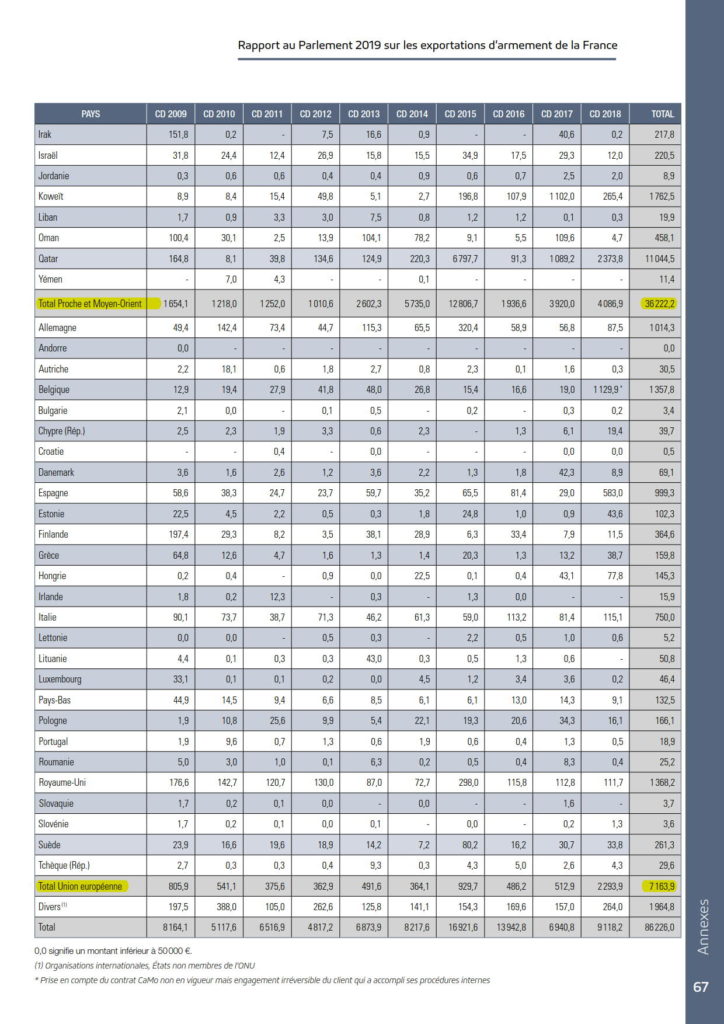
If there is no economical justification to explain the development of an industry on armament, we shall question why so much energy is deployed to justify it. The answer may be the bipartisan results for Socialism and Gaullism. Socialism stay in the political battle by increasing a presence on the national territory. More industries, mean more militants and so more votes. Gaullism quietly continues its “sovereignty” activities abroad in Africa, South America, the Middle East and Asia. Both have found a common ground with anti-Americanism which is reinforced by the partnership of Socialists with China and both have an authoritarian view on Europe and the rest of the world. Globally, they found peace on the national ground for whom, so far, who does not want to face the reality. On February 5, 2013, Nigel Farage made the following speech:
[embedyt] https://www.youtube.com/watch?v=OXy4KIruVDs[/embedyt]Transcript: President Holland, despite your own views, you’re doing rather a lot for the Eurosceptic debate in France. The decision to reduce the retirement age, to increase the minimum wage, but above all of course, the high tax to make sure that all your successful entrepreneurs and now footballers are fleeing France, means that the competitiveness gap between France and Germany is getting wider, that is now being reflected in a flight of capital from French banks and people are beginning to notice that actually, ultimately, the euro is not just doomed in the Mediterranean, but it’s going to be impossible for France and Germany to stay together inside the same economic monetary union. So on the basis that your employment minister says the country is bankrupted, what do you do. Well, the old trick, launch a foreign military intervention so your troops go off to Mali and yes, it’s very good to see the smiling faces in Timbuktu for the moment, but you’ve done this on behalf of the European Union. It is now an EU mission. Just two days ago, Tony Blair said the European Union is not about peace. The European Union is about power. I think what he meant is the European Union increasingly will be about war, because the response to Mali, the response to it being an EU mission, we’ve heard it all around the chamber today, the liberals urging us to intervene militarily in Syria has support from right and left in this house, that EU should intervene militarily. I have to say this, if you really think that taking on fundamentalist radical Islam in battle is something that we can somehow succeed in, I suspect we would have launched ourselves in the same way we have in Afghanistan on a decade of unending, unwinnable misery. I do not want the United-Kingdom to be part of a militaristic warlike European Union and that’s the speech that I’ve heard both from you, President Holland, and from most people in this chamber today.
https://youtu.be/OXy4KIruVDs
We have seen how military missions abroad have played in favor of the government to baby sit the army and we have seen how the increasing militarization of France has created a gap in the commercial balance. Lets now explore the reasons for this gap. As we have seen, what is described by the DGE as a “job” shall rather be translated as “workplace” and this workplace came with the cost of buying the machines. In Europe, the leader for the construction of industrial machining is Germany and France only provides the importation services, paid with French tax payers money.
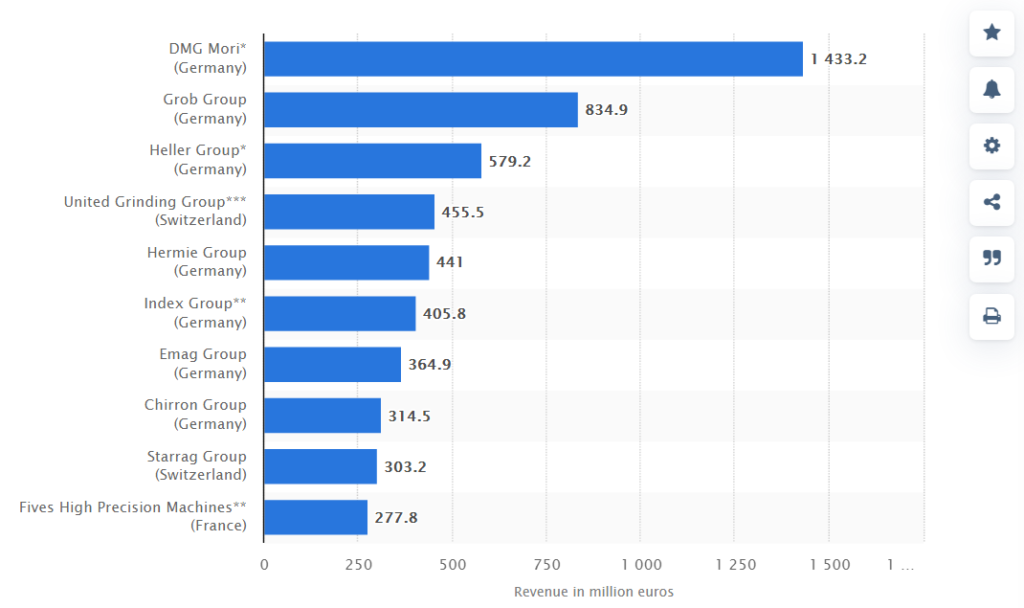
Positioned as one of the leaders in the import of machine tools in France, the Angevin company known as Transtec Machines-Outils provides long-lasting solutions in the field of industrial machining. Established in Angers since 1981, it gives you an answer adapted to each of your problems.
https://angers.cherchenet.com/2610/beacouze-societe-transtecmo-leaders-importation-machines-outils
It is then no surprise if efforts from the DGA and the DGE do not pay in term of employment, but we see on the maps how they pay in terms of politics. With alternatively Gaullism and Socialism, all the tools to prevent the politisation of the apparatus of the state have been removed what resulted in a fast and plunging de-capitalisation (industry and small businesses) and both parties are now making a political front to resist far right and far left wings. Both the far extremes have already reunited into a Populist party. At the same time, the Social Democrat party of Hitler is back in power in Germany and President Macron is increasing his demand to militarize Europe.
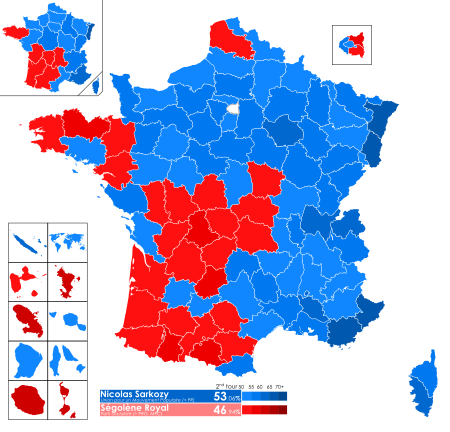
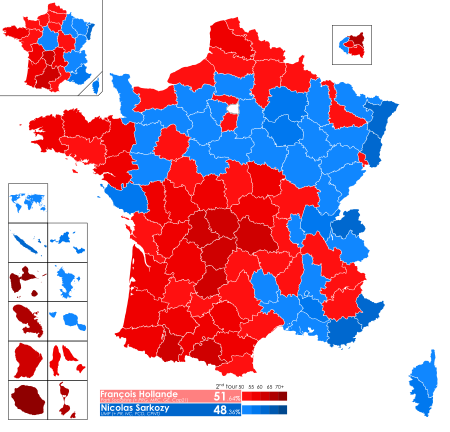
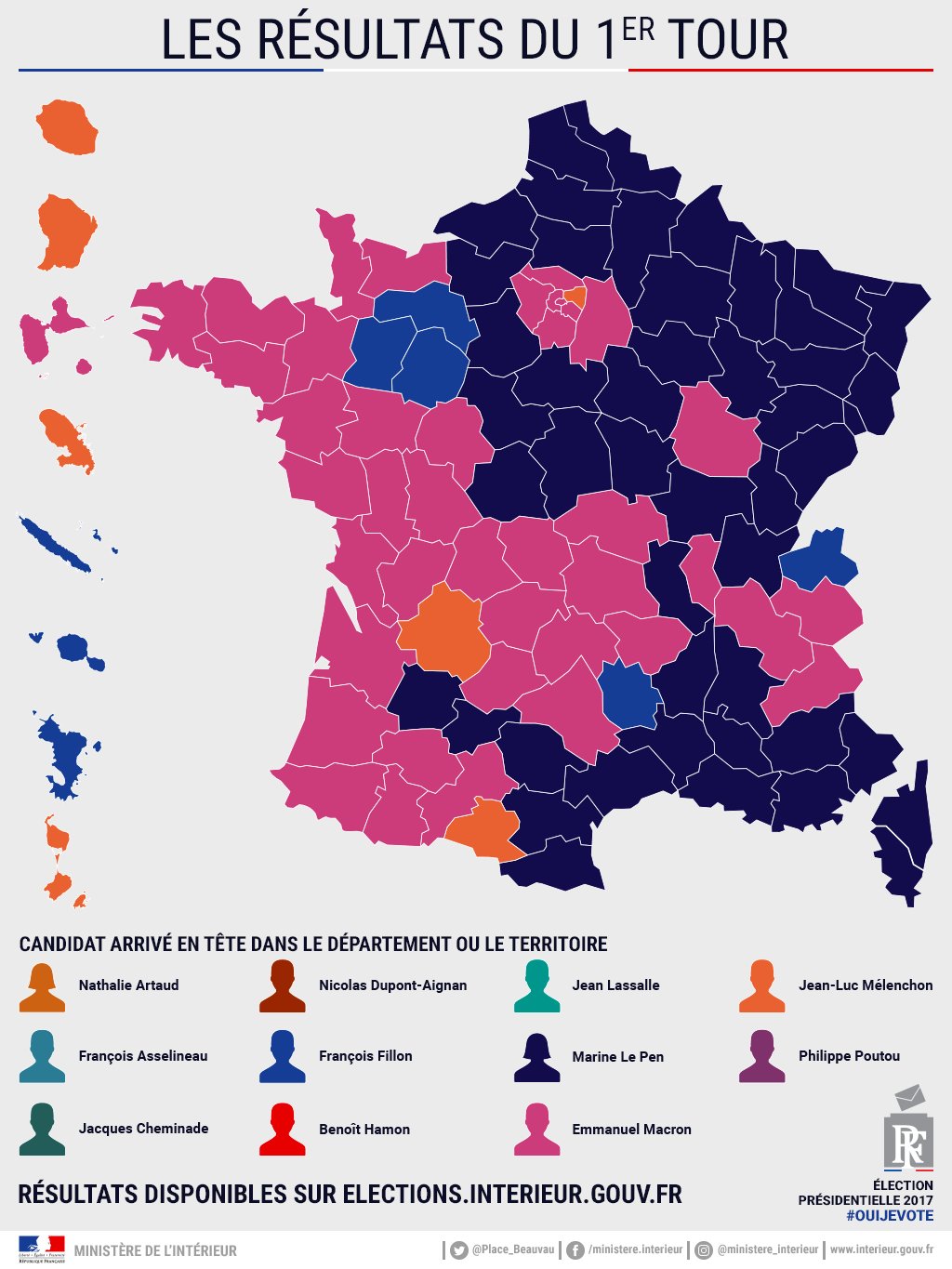
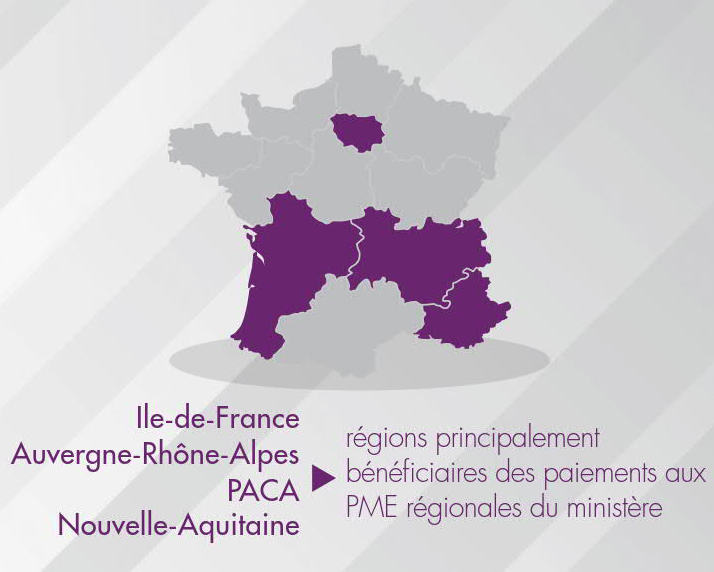
We see that both main powers in Europe find a common interest in militarizing Europe. Germany provides the machines and France provides the labor. As said President Macron on “L’activité 2015 des référents uniques pour les investissements” :
The short-term priority was to preserve the cost competitiveness of our businesses: we have done it. Thanks to the Tax Credit for Competitiveness and Employment (CICE) and the responsibility pact, companies have regained margins allowing them to invest. The concrete translation of these measures is clear: the cost of labor in the manufacturing sector in France is now lower than it is in Germany.
So France is still importing expensive machines, but to stay competitive, they lowered the wages. In reality, they have even done worse because they have increased the cost of taxes, gas, electricity, energy and the only life buoy are cheap Chinese products which are inundating Europe. The very peculiar interest that China does enjoy in seeing Europe and particularly France at the edge of collapse comes precisely from France industries in the energy sectors and companies such EDF, Thales and the 45 large MOI on armament. Those MOI are partially owned by the French State, but a state craving for money and ready for any kind of silly measures.
[embedyt] https://www.youtube.com/watch?v=_Z3Hx14QkbY[/embedyt]Transcript: If I were no longer a member of Parliament, I would once again become a referendum advisor to the Court of Auditors. What does that mean? It means that if I did absolutely nothing at the court of accounts, I would continue to earn 15,000 francs per month, 25,000 if I made reports, but without necessarily doing a lot, I could measure my work, stay at home when I am tired, going to the Court of Auditors in my office to make phone calls, in short, I would be totally free, I would be a real privileged person as I was before being elected deputy.
The gap between rich and poor is going bigger and political cynisme make the people no more reasonable than their government. Fear and anxiety bring the people in the streets while the army is kept away to stay busy over seas. The French apparatus is purely administrative and lacks the field knowledge to prevent catastrophe. France is not only bankrupted, it is reduced to a state of financial ruin. On “Europe is at risk of war – What should we do?“, the author summarizes the situation to this:
Theft of property is theft of the Past, of the work you did to create or acquire something. Murder is theft of the Future, of all the future potentialities of the being killed. Imprisonment etc. are theft of the present, denying people freedom to do what they will with their property, their body and mind.
https://edgeryders.eu/t/europe-is-at-risk-of-war-what-should-we-do/1519
France is imprisoned between Socialism and Gaullism and there seams to not be any other alternatives, what will translate into an escalation of thefts, crimes and political chaos. The “Ordre Nouveau” of Marshal Petain has reached the fundamental blink that would sparkle any war. After selling weapons abroad, the DGA is selling the idea of a European industry of weapons and behind this idea, there is the mechanism of a global disaster. On the following video, Vincent Nouzille introduces his book on “Les Tueurs de la République: Assassinats ciblés et opérations spéciales des services secrets” (The Killers of the Republic: Targeted Assassinations and Special Operations of the Secret Service). He describes in the video how Presidents decide of the death and crimes conducted by the French army, and the role of the “État-major particulier du président de la République française” to conduct those kinds of operations. The boss is the president and the apparatus of France has become a real mafia, killing, stealing, influencing, threatening, manipulating opinion and practicing terrorism as a way to stay in power.
[embedyt] https://www.youtube.com/watch?v=pm5gHfdThSA[/embedyt]There have been two Frances fighting against each other and they are now covering the same crimes. Justice weights about as much as the turnover on exportations of weapons. People are getting poor, struggling to pay the gas, the electricity, the water, finding quality food, saving for retirement, buying homes and even having children. How could they invest their own energy on innovations, opening companies and diverting the system. They were born in this system, young generations of minds cooperating in silence. They are not even impressed with the literature. They were trained to abide with it, finding heroes in gang masters and there is no need to go politics to match a right with a left. They eat at the same table, they watch the same movies and they both salute the same army. The DGA is training them to watch at each other and bring the information to the boss who then decides of life and death, and which kind of small cuts for killing. Taxes, gas, electricity, compulsory levies, many legal means that in excess become lethal for low budget households and small companies. In the economical landscape, the euro is becoming red, like a flag of politics on the moon.
4 throughts on "French Secret Services"